



Choosing
Visit







You dream it, WeDesign|Build It!













Choosing
Visit







You dream it, WeDesign|Build It!









Built in 1915, The Duke Mansion exemplifies Southern charm wrapped in modern luxury and superior service. It’s the perfect spot for an overnight retreat, a weekend getaway or a special event. It’s also home to one of the most gorgeous public gardens in Charlotte, nestled in the heart of the Queen City.
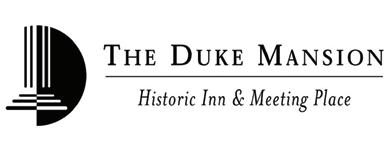
Come stroll the grounds and witness the splendor of the Mary D.B.T. Semans Gardens, stretching out over 4.5 acres and changing with every season. This spring, you’ll find such beauties as tulips, daffodils, hyacinth, azaleas, flowering cherry trees, dogwoods and spring bulbs bursting with blooms.

Enjoy a picnic in the Dargan Spring Meadow, where lush, green grass is surrounded by graceful Japanese maples, a towering Tulip Poplar and hydrangeas in shades of blue and lavender. Or relax in the Reading and Pollinator Garden, the newest “room” of the garden installed in 2019. Alongside a bubbling fountain, palm trees, Loquat and mostly native flowering plants and shrubs invite butterflies, bees and birds.

The Mansion’s long, winding mulch paths promise surprises around every corner, and its open spaces offer stunning views — filled with layers of texture and color — all around. Beautiful stone hardscapes are ideal for entertaining, and serene, manicured spaces allow for idyllic, intimate moments.
We invite you to appreciate the beauty and splendor of The Duke Mansion — both inside and out — this spring.




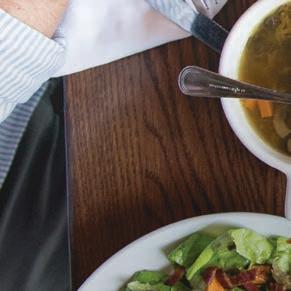








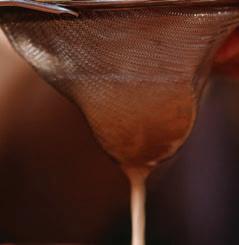


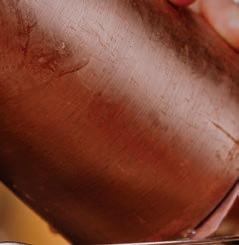
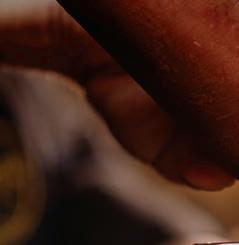


Experience why Charlotte is in the national spotlight as a culinary destination. This is your o cial invitation to Savor Charlotte, a two-week celebration of the chefs, mixologists and culinary community who define the flavor of the Queen City. From March 8-22, discover can’t miss hands-on classes and demonstrations from industry trendsetters, exclusive menus from tastemakers and special o ers from top restauranteurs. This is the story of Charlotte told by the culinary artists who call the Queen City home. Plan your visit at savorcharlotte.com

















When it comes to travel, I’m a starry-eyed dreamer. My tiny personal Instagram feed is filled with travel inspo – from rustic Airbnbs to awe-inspiring national parks to bucket-list destinations around the world (see page 114). After a few quiet years hunkered at home, I’m not alone. In January, a local travel planner suggested adding at least $1,000 (!) to your trip budget this year as pent-up demand, among other factors, is driving up rates across the board. Planning in advance has never been so important.
I realize I’ll probably never make it to many of the droolworthy destinations on my feed. And that’s OK, according to contributor Krisha Chachra. “Your body does not know the difference between an overwater bungalow in Bora Bora and a cabin in the North Carolina mountains,” Krisha writes. When I met Krisha for coffee to discuss her idea for an essay about the link between travel and mental well-being, she described friends –mostly moms – who were stressed to the nines over planning the “perfect” family vacation. A First-World problem, for sure, but still, it was so relatable. A longtime travel writer who has visited more than 50 countries, Krisha knows quite a bit
about the subject. You can read her essay on page 111.
Also in this issue, Whitley Adkins and Richard Israel take us on a photographic journey of the rural back roads leading to the coast. How many of us have repeatedly traveled a certain route, always wanting to know more about the people and places along the way? But always in a hurry to get “there,” wherever the destination, we rarely take the time to really examine that beautiful old building that catches our eye each time we pass or learn who’s behind the counter at that roadside cafe. This time around, the journey is the destination.
March is also showtime for college hoops, and my colleague and fellow Tar Heel Sharon Smith shares a fun (and funny) story about her husband’s old-school bracket pool on page 48. I knew Colin was a dinosaur when Sharon told me he doesn’t own a cell phone. But his bracket pool — which requires submissions via mail, hand delivery or fax — is next level. Happy spring, safe travels, and go Heels!
editor@southparkmagazine.com
1- The iconic Providenciales restaurant Da Conch Shack (page 114)

2 – Photographer Richard Israel at Salters Depot in Williamsburg County, S.C. (page 100)

3 - Forget uploading: Assistant Editor Sharon Smith’s husband heads up an NCAA pool that still requires mail, hand delivery or fax (page 48).

4 – Contributor Krisha Chachra writes about viewing travel not as a luxury, but a necessity (page 111)

5 - Whitley Adkins, Alissia Matthews, Zenobia Harper and Jacqueline Williams at the Rice Museum in Georgetown, S.C. (page 100)




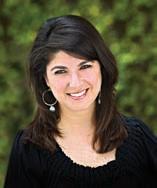

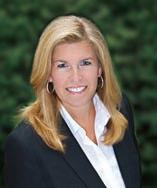
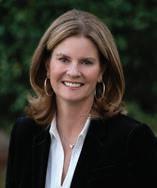








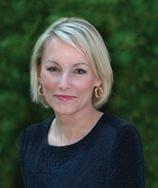


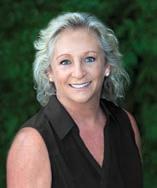


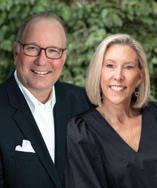




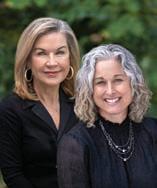

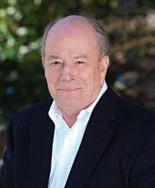
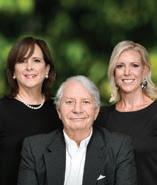






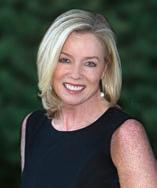

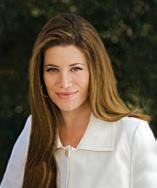

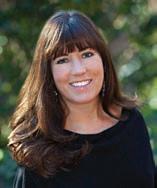




BLVD.
30 | artists
Mary Benson’s lively landscapes
34 | nightlife
Charlotte’s favorite watering holes
42 | music
Outdoor music experiences abound in North Carolina.

48 | sports
An NCAA bracket pool keeps it old school.
52 | style
Local jewelers turn sentimental pieces into modern, wearable treasures.

58 | people
Charlotte Museum of History CEO Terri White aims to reshape community views of the east Charlotte institution.
62 | givers
A nonprofit youth rugby club fosters inclusion, fun and giving back.
65 | around town
What’s new and coming soon in Charlotte
66 | happenings
March calendar of events
70 | art of the state
Red Springs native Antoine Williams forged his own path to bring his art to light.
73 | creators of n.c.
On the trail with Charles Frazier
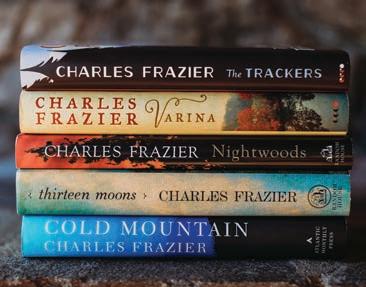
77 | simple life
Grateful for another trip around the sun
81| bookshelf
Notable new releases
85 | well + wise
Therapy 101: What to know about seeking help from a professional
123 | swirl
Parties, galas and events around Charlotte
128 | gallery
Charlotte SHOUT! returns.
Photograph of Salters Depot in Salters, S.C., by Richard Israel


92 | Gold standard by Cathy Martin
photographs by Laura Sumrak
A Myers Park family breaks with tradition in a bright and welcoming renovation.
100 | Back roads by Whitley Adkins
photographs by Richard Israel Beach bound: Finding beauty in unexpected places

111 | Willful wandering by Krisha Chachra
Whether visiting a cabin in the woods or a far-flung destination, travel boosts our quality of life. A longtime travel writer shares tips for achieving your vacation goals.
114 | Aqua therapy by Cathy Martin
Direct flight: Leave stress behind with a getaway to Turks and Caicos.


1230 West Morehead St., Suite 308 Charlotte, NC 28208 704-523-6987 southparkmagazine.com
Ben Kinney Publisher publisher@southparkmagazine.com
Cathy Martin Editor editor@southparkmagazine.com
Sharon Smith Assistant Editor sharon@southparkmagazine.com
Andie Rose Creative Director
Alyssa Kennedy Art Director alyssamagazines@gmail.com
Miranda Glyder Graphic Designer Whitley Adkins Style Editor
Contributing Editor David Mildenberg
Contributing Writers

Michelle Boudin, Wiley Cash, Krisha Chachra, Jim Dodson, Juliet Kuehnle, Amanda Lea, David Menconi, Liza Roberts, Jennings Cool Roddey, Michael J. Solender, Palmer Stowe
Contributing Photographers Mallory Cash, Daniel Coston, Richard Israel, Laura Sumrak
Contributing Illustrator Gerry O’Neill
ADVERTISING
Jane Rodewald Sales Manager 704-621-9198 jane@southparkmagazine.com


Cindy Poovey Account Executive 704-497-2220 cindy@southparkmagazine.com
Scott Leonard Audience Development Specialist 704-996-6426
Sarah Fligel Marketing Specialist
Brad Beard Graphic Designer
Letters to the editorial staff: editor@southparkmagazine.com
Instagram: southparkmagazine
Facebook: facebook.com/southparkmagazine
Twitter: twitter.com/SouthParkMag
Owners Jack Andrews, Frank Daniels III, Lee Dirks, David Woronoff in memoriam Frank Daniels Jr. David Woronoff President david@thepilot.com

Live


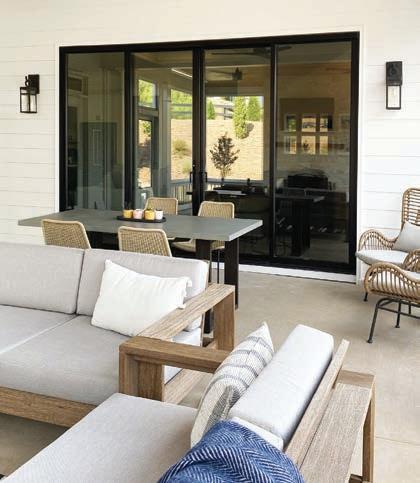








































Earning the position as one of the nation’s top real estate companies is a direct result of the remarkable talent aligned with Premier Sotheby’s International Realty. These professionals have dedicated their careers to uniting extraordinary properties with extraordinary people in the markets they serve utilizing our global network.





It is with great pride that we honor the industry’s best and brightest for their invaluable contributions to our company and communities, and express our deepest gratitude to our valued customers for their ongoing trust.



Looking for an excuse to finally try that hot new restaurant? Want to make cocktails at home like your favorite bartender? Savor Charlotte (March 8-22) is a two-week culinary series spotlighting some of the city’s leading restaurants, mixologists, chefs and bakers, including classes, cooking demonstrations, special menus and more. At press time, experiences included a cocktail class with mixologist Yoshi Mejia at The Cocktailery and special pricing on prix-fixe dinners at Biblio and Counter-. Other participants include Harper’s Restaurant, Free Range Brewing, Supperland, The Goodyear House and Billy Sunday. Visit savorcharlotte.com for updates and reservations. SP

Sunlight beams through the windows of a 1934 bungalow in Charlotte’s Elizabeth neighborhood as Mary Benson adds color to a blank canvas. The sounds of Jack Johnson, Tyler Childers and her other favorite musicians bounce off the tall ceilings as she brings her visions to life.
In her home studio, Benson, founder of Mary Benson Art, creates colorful oil paintings in a style she calls abstracted, contemporary impressionism. Her inspirations come from scenery she often finds herself surrounded by, such as mountain peaks, wildflowers or Spanish moss hanging off live oak trees.

“It makes me feel at peace, and it makes me feel very restored when I am spending time in those [outside] spaces,” she says. Benson strives to visually convey the emotions she experiences when spending time in nature through brushstrokes and pops of color.
“Through my artwork, I want to be able to communicate and share those feelings and experiences I have had and hopefully bring other people a feeling of peace or joy,” she says.
Benson typically leans toward bright, vibrant hues, though she tries to incorporate muted and neutral colors in her paintings as well. “It’s a balance,” she says. She starts by painting the foreground and works from the front of her piece to the back — reverse painting, as she says — letting the underpainting shine through as an outline. “I think of it kind of like a mosaic, in a way, puzzle-piecing the parts of the painting together.”
Benson is constantly brainstorming and absorbing inspiration from objects and colors in her everyday life — from the shade of someone’s shirt to elements in the natural world, sometimes even close to home. On a neighborhood walk with her yellow Lab, Gus, Benson

was captivated by a flower garden in her neighbor’s yard. She grabbed a picture of it and used the inspiration in the foreground of her painting, “Golden Light.”
“That painting was kind of a breakthrough, in a way,” she says. The 30-by-40-inch painting spurred a lot of growth, pushing her to paint larger canvases and encouraging her to hone in on her unique style. She shared a corner of it on social media before it was finished. It sold right away.
“I was really excited to push myself to paint on a large scale, and I was really excited about how it came out,” she says. “Seeing people’s response to it was super encouraging.”
Benson, a Winston-Salem native who works as an art director for a video-production agency, moved to Charlotte in 2019 after graduating from Clemson University with a degree in graphic communications and a minor in art. However, her love affair with art began when she was in the ninth grade when a teacher affirmed her creative gift. From there, her passion and skills grew.
Coming from an artistic upbringing, Benson reflects on sharing the early moments of her painting journey with family members. Her sister, who lives in Charleston, S.C., is also a painter, and her mother is an interior-design professor at Liberty University in Lynchburg, Va.


“We would paint for hours or draw for hours around the kitchen table, and we had our art supplies sprawled out all over the
place,” she says. “It’s been really nice to have them throughout the years to bounce ideas off of and having those sweet memories when we used to do [art] all together.”
Fast forward to today, and Benson’s art can be purchased on her website, marybensonart.com, and at Common Good Co., a shop and art gallery in Boone. She’s been amazed at how quickly her art career has blossomed since she started selling her work in 2020. “It’s really cool to see.” SP







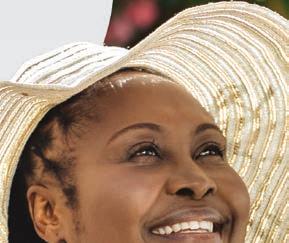
To get the best care for your heart, partner with Atrium Health Sanger Heart & Vascular Institute. With the most advanced treatments, unrivaled expertise and experience, and multidisciplinary care from prevention to diagnosis to rehab, we’re transforming hearts and changing lives. That’s why U.S. News & World Report rated us the #1 heart program in the region.

CHARLOTTE’S FAVORITE WATERING HOLES: WHO’S THERE, WHAT THEY’RE DRINKING AND WHY THEY COME by Palmer Stowe | photographs by Richard Israel
Despite a 1985 statewide ban on the sale of discounted alcohol during limited hours, the spirit of happy hour lives happily and healthily in Charlotte’s many watering holes. Come 5 o’clock, cozy taverns, grungy dives and plush cocktail bars around the Queen City slowly begin to fill with Charlotteans of every stripe, all sharing the common desire to turn the dial down on the day with a pint of beer or an icy martini. For our new happy hour feature, I’m slinking into a handful of the city’s bestloved canteens (with a designated driver in tow) to talk to locals about how, why and with what particular poison they’re blowing off the day’s steam.






























Crouched over a glass of OMB Copper and a bottle of Bud Light at one corner of the worn bar sit Dana DuBose and George Macon, both in the real-estate development business and both sporting Myers Park-dad chic — a common look around this place. They’re passing an iPhone back and forth, admiring pictures from a recent duck hunt. These longtime friends have been coming to Sundries for years; particularly Dana, who grew up in Charlotte and jokes that he started showing up at the casual neighborhood spot as soon as he was legally able. A plate of wings (buffalo and dry-rubbed) appears as the guys reminisce about the past, when grabbing happy-hour drinks with friends at Sundries was a more common occurrence.
Tucked into one of the restaurant’s wide, wooden booths are two older gentlemen — one of whom turns out to be a local celeb-



rity. Johnny Deramus grins as he asks if we’ve seen the newspaper clipping in the front of the restaurant. “That’s me!” he says, as his friend Marsden Haigh chuckles across the table. Johnny, the restaurant’s former owner, bought the space in 1976 and retooled it from something reminiscent of a soda fountain into a version of its current iteration. He’s clearly delighted to recount past days of Sundries’ long reign as Myers Park’s favorite casual spot for a pint. With a gleam in his eye, he points to where his name is hidden in the celebrity mural that spans the bar’s southern wall. The gents admit they’re out cutting loose a bit because Marsden’s wife is away at the beach. We leave them to continue recounting days gone by — both, like Sundries, cheery with memory.


At the Namco Quick & Crash Real Shooting Game, Steve
Cole is trying his best to shatter a small teacup as it glides across the screen. He enjoys the larger arcade cabinets here at Super Abari Game Bar, like this carnival-style shooting game and Taiko no Tatsujin, a Japanese game similar to Guitar Hero but featuring large computerized Japanese drums instead of electric guitars. His friend, Nicole Ritter, joins him, returning from Abari’s neon-lit bar with a beer in hand. Steve muses over what’s drawn them here this particular evening. “It’s something to do, you know? Rather than just sitting at a bar. And they switch up the games.” Abari’s large game space is lined with pinball machines in addition to the various cabinet games — Dr. Mario, Pac-Man, Tekken, not to mention the 8-foot-tall, playable Game Boy.
Over at the pinball machines, Will and Tabitha Farmer are trying to decide between the Attack on Mars or Stranger Things. Like myself, Tabitha’s only recently begun learning the nuances

Opposite, clockwise from top left: George Macon, Dana DuBose and the author at Providence Road Sundries; a framed news article at Sundries; Macon at the bar; friends Marsden Haigh and former owner Johnny Deramus.
This page: DuBose at Sundries, top left; Will Farmer, top right, and Tabitha Farmer, left, enjoying postwork beers and pinball at Super Abari Game Bar; the author at Abari.



of different pinball cabinets. I point out the nearby Fish Tales machine and warn that, despite a goofy appearance, it’s particularly unforgiving. Like Steve and Nicole, Will and Tabitha have been to Abari a few times to enjoy a post-work beer while sampling the changing mix of new and vintage games. Tabitha, a Gastonia native, fills us in on how she met her baby-faced husband, and how he introduced her to the wide world of pinball. I suggest she look into Belles and Chimes, an all-female pinball league, and leave Will and Tabitha to duke it out on Stranger Things.
With one more loop around the floor, we find Tom Miller also trying his luck at the Namco Quick & Crash. Tom, a musician, is visiting Abari with his girlfriend (sporting very fetching pink hair) and a pack of buddies who have scattered to all corners of the game floor. Tom warns us that Abari goes from quiet to busy in the blink of an eye, and I suddenly notice many more bodies
standing in front of pinball machines. While everyone we spoke with seems drawn to Abari for a similar reason, I can’t help but appreciate everyone’s different tastes in the games themselves. “I like anything from the ’90s,” Tom says with a smile. “The old fighting games, Mortal Kombat, that type of stuff.” As we head out, he cozies up to a Teenage Mutant Ninja Turtles game and drops his beer in the handy game-side cup holder, soaking up the retro nostalgia.


Renee Bromfield is perched on a stool at BrickTop’s roomy bar, contemplating the dry martini punctuated with blue cheesestuffed olives in front of her. Renee, a Texas native who’s been in Charlotte for the past 12 years, lives nearby and visits BrickTop’s fairly regularly for happy hours, and otherwise. She loves the food here, the excellent service and the interesting mix of folks that crop up around the bar on any given day. “I love the grilled artichokes,” she muses, “and the trout.” But being a Texas girl, she’s also a big beef fan, and we swap steak recommendations before she
tells me about her job at AvidXchange, a software company near uptown. While describing a Google campus-like workspace, Renee is joined by friend David, who meets Renee for drinks whenever they can get together. After dishing over BrickTop’s ribs for a moment (they’ve earned Renee’s Texan seal of approval), we bid her good luck on her future happy-hour endeavors.
Upon plopping down next to him at Smokey Joe’s Cafe, Jared Sherrill asks me if I’ve noticed the waterfall. As this is only my second time here, I tell him I definitely haven’t. He points up, into the dark ceiling of the shabby-yet-cozy space, where my eye is indeed drawn to a small waterfall inexplicably nestled in the bar’s rafters. Jared says he likes spots like Smokey Joe’s — divey, but friendly and welcoming. A Florida native and traveling nurse, Jared hasn’t been in town long, but he fell for Smokey Joe’s low-key atmosphere right away. A veteran of the food and beverage business, he shares a taste in bars with many others I know in the industry — unfussy, inexpensive and a little on the gritty side. Smokey Joe’s isn’t putting







on any airs, but therein lies its charm. Jared confesses that nursing and working in restaurants share similar demands; lots of time on your feet and very few breaks. So to him, whether you spend your days waiting tables or tending to patients in a cardiac stepdown unit, enjoying a cold, cheap beer from the comfort of a well-worn barstool seems like the perfect way to end a day.
As Jared continues his evening wind-down, I find Tim Dayton sitting at one of the many incongruous table-chair combinations at Smokey Joe’s. Tim’s watching his buddy Mad Dog and another friend play a bit of pool. Tim grew up in the Charlotte area but has a long line of kin back in Tennessee. “I’m one of the first in my family to do something other than making moonshine,” he quips, sipping Michelob from a pint glass. He does landscaping around town and has been coming to Smokey Joe’s since before he was old enough to legally order beer from the bar. Like Jared, the cheap beer and casual atmosphere are the big draws, not to mention the pool table. Charlotte has plenty of good pool halls, Mad Dog shares, but he does like playing a few games at Smokey Joe’s when it’s quiet. “It gets rowdy on the

weekends! Heck, it’ll probably get rowdy tonight come 9 or so,” adds Mad Dog (who didn’t want his photograph taken). Despite the heavy rain now drumming down on the roof, I can believe it. The guys wrap up their game and step outside for a quick cigarette, but not before Mad Dog declines one last request to snap his picture. Next time, Mad Dog.
Settled into a low-slung leather couch, Caleb Schmitt and Bryan Frost are sharing a laugh over bottles of beer and recounting past bar adventures back in their home state of Colorado. “We’ve had a few friends end up down here,” Bryan says. “It’s nice to be able to get together and catch up.” Caleb and Bryan are among the more spiffed-up customers in Smokey Joe’s this evening, both clearly dressed for office jobs. They make for a bit of a gear change from Tim and Mad Dog, and my conversations with both highlight the fantastic mix of folks that patronize Smokey Joe’s — in my opinion, the mark of a truly great watering hole.

With the rain still driving down, I leave Bryan and Caleb with a few other Charlotte recommendations but assure them they’ve found a real gem in Smokey Joe’s. SP



Springtime in North Carolina means college basketball madness, azaleas blooming — and the earliest days of outdoor music. Our state has a staggering array of A-list music festivals spanning numerous genres from now until fall. Here are a few to consider.
April 1 - 2, Raleigh; dreamvillefest.com
Between apocalyptic weather and the pandemic, rapper J. Cole’s Dreamville Festival has had a rocky existence in its short history. But in spite of multiple postponements, Dreamville has been a huge success, starting with 2019’s sold-out debut at downtown Raleigh’s Dorothea Dix Park that immediately established it as one of the nation’s top hip-hop festivals. Dreamville’s second edition in 2022 expanded from one day to two, with an onstage lineup featuring the entire roster of Cole’s Dreamville Records label, and it also sold out. Round three returns to Dix Park the first weekend of April as another multiday affair, with Cole himself in the headline slot.
April 27 - 30, Wilkesboro; merlefest.org
Centered on the multistyle “traditional plus” music played and loved by its late, great founder, Doc Watson, MerleFest has been a tradition at Wilkes Community College since 1988. The ven-

erable roots-music festival is a signpost event on the Americana circuit. And after the same pandemic problems that every other live-music event faced in recent years, it’s back with an impressive lineup featuring the Avett Brothers, Maren Morris, Little Feat, Tanya Tucker and more.
April 28 - 30, The Highlands Plateau; bearshadownc.com
The mountains of the far western corner of North Carolina are the setting for this springtime festival, which happens the same weekend as MerleFest. First conceived in 2021, this year’s model has a first-rate alternative-leaning lineup featuring Spoon, The Head and the Heart, Jason Isbell and Amythyst Kiah.
Shakori Hills GrassRoots Festival of Music
May 4 - 7, Pittsboro; shakorihillsgrassroots.org
Started in 2003 as a nonprofit music and dance festival, Shakori Hills takes place on a bucolic 9,000-acre spread in rural Chatham County. It’s probably the top camping festival in the greater Triangle region, with solid Americana lineups. Marty Stuart & His Fabulous Superlatives, Malian singer/guitarist Vieux Farka Toure, beach legends Chairmen of the Board and festival regulars Donna the Buffalo are this year’s headliners. There’s also a fall version of Shakori Hills, which happens every October.

July 1 and 4, Durham; enofest.org

The granddaddy of music festivals in the Triangle, Festival for the Eno dates to 1980 and happens on the grounds of Durham’s West Point Park. Started as a fundraiser for the Eno River Association, the festival — which also offers a craft and food market — has hosted a who’s who of Americana-adjacent and roots artists including Emmylou Harris, Doc Watson and Loudon Wainwright III. Recent years have featured rising regional acts including Mipso, Rainbow Kitten Surprise and Indigo De Souza.
June 3, Carolina Beach
Dance to beach music with your toes in the sand at the 37th annual Carolina Beach Music Festival on Saturday, June 3 from 11:00 a.m. to 5:00 p.m. Billed as “the biggest and only beach music festival actually held on the beach on the North Carolina coast,” three bands will perform. For ticket information call (910) 458-8434.
Mountain Dance and Folk Festival


Aug. 3 - 5, Asheville; folkheritage.org
Reputedly the first event in America to be called a “folk festival,” Asheville’s Mountain Dance and Folk Festival was founded in 1928 by the folk-music legend Bascom Lamar Lunsford. It remains the longest continuously running folk festival in the country, and it’s as much about the folk dance traditions of western North Carolina as the music.
Earl Scruggs
Sept. 1 - 3, Mill Spring; earlscruggsmusicfest.com
A newcomer to the North Carolina festival circuit, the Earl Scruggs Music Festival debuted in the Foothills last year at the Tryon International Equestrian Center in Mill Spring. As you’d expect for a festival named after the man who invented the three-finger style of bluegrass banjo, the lineup trends toward classic bluegrass and Americana.
Sept. 2 - 3, High Point; coltranejazzfest.com
Though he made his mark as an artist elsewhere, John Coltrane was born and raised in Hamlet. He was one of the towering figures of 20th century jazz, a key collaborator with Miles Davis, Duke Ellington and his fellow North Carolina native Thelonious Monk. The John Coltrane International Jazz and Blues Festival has been paying tribute to his legacy every Labor Day weekend since 2011 with solid lineups — 2022 featured trumpeter Chris Botti, singer Patti LaBelle and saxophonist Kirk Whalum, among others.



Sept. 7 - 9, Raleigh; hopscotchmusicfest.com
Downtown Raleigh has a well-earned reputation for doing music festivals right, and one of the events that helped pave the way is the alternative-slanted Hopscotch, originally started in 2010. Past headliners have included Flaming Lips, The Roots, Solange Knowles and St. Vincent. Hopscotch director Nathan Price reports that this year’s model should feature “an expanded lineup closer to pre-Covid size.” Here’s hoping.
Sept. 8 - 10, Greensboro; ncfolkfestival.com

In 2015, the National Council for the Traditional Arts brought the long-running National Folk Festival (which has been around since 1934) to Greensboro for a three-year run. It was such a success that, after the national festival’s Greensboro run ended, the city opted to keep it going as the rebranded North Carolina Folk Festival. Last year’s lineup was typically eclectic, featuring everything from George Clinton’s P-Funk All-Stars to the Winston-Salem Symphony String Quartet. Expect more of the same in 2023.
Sept. 26 - 30, Raleigh; worldofbluegrass.org
The International Bluegrass Music Association moved its annual business convention and festival to Raleigh in 2013, where it has been a huge success. Between the convention, trade show, “Bluegrass Ramble” nightclub showcases, awards show and street festival, total attendance can top 200,000 when the weather’s good. Past headliners have included Steve Martin, Alison Krauss, Béla Fleck and just about every notable picker and singer in the genre. Year in and year out, it’s downtown Raleigh’s biggest music festival.
October 19 - 21, Manteo; bluegrassisland.com
Music lovers will flock to the Outer Banks, beach chairs in hand, for the 12th annual Bluegrass Island Music Festival at Roanoke Island Festival Park overlooking the pristine waters of Roanoke Sound. Buy tickets and book lodging well ahead of time. Acts this year include The Goodwin Brothers, Seth Mulder & Midnight Run, Rhonda Vincent & The Rage and the incomparable Sam Bush. SP
Add these Charlotte music festivals to your calendar.
Moo, Brew & Que Music Fest, AvidXchange Music Factory
April 15 - 16, mooandbrewfest.com
Mt. Joy and Chris Lane headline this year’s festival, which includes 25+ local, regional and national breweries, plus a restaurant and food-truck competition for best burger and BBQ.
Tuck Fest, U.S. National Whitewater Center April 21 - 23, tuckfest.whitewater.org
This annual event offers a full slate of activities beyond the stage, including yoga; bouldering and deep-water solo competitions; and trail, kayak, SUP and raft races. Headliners include Amanda Shires, Moon Taxi and Bahamas.
N.C. Brewers and Music Festival, Historic Rural Hill, Huntersville May 12 - 13, ncbrewsmusic.com
This two-day event features nine bands and 40+ breweries. This year’s lineup includes Steep Canyon Rangers, Molly Tuttle & Golden Highway, Lilly Hiatt and Time Sawyer. On-site camping is available.

FabFest, Knight Theater, Central Piedmont Community College July 21 - 22, fabfestcharlotte.org
This celebration of all things Beatles features two evening concerts by BritBeat and the Tosco Music Beatles Tribute, plus a full day of music, speakers and activities.








 by Sharon Smith
by Sharon Smith
There’s a singular know-it-when-you-hear-it sound that comes around only once a year in our household. It’s my husband’s “One Shining Moment,” when the fax machine gets hooked up and brackets start coming in.
Just like it was in 1999. That’s when Colin and a few friends from UNC Chapel Hill launched the “No Randoms Allowed” NCAA Tournament Pool. It’s my husband’s baby (though we have three children), and he devotes nearly newborn-level attention to running the pool every year.
Despite plenty of technological advances since then, the rules of submission haven’t changed: Brackets can only be delivered via fax, mail or by hand.
“I always send out an opening email to get the juices flowing with everyone — a kickoff, to get the email chatter going,” Colin says. He smiles with a little glint in his eye. We know, all 75 or so of us, that he takes great pride in crafting that annual email opener. It’s long, witty and full of shoutouts to this loyal crowd.
It’s a tightknit group. Colin estimates 90% of participants are Carolina friends, their spouses or partners. Children are also allowed to fill out brackets. Entries make their way to our home from New York to Atlanta. A few N.C. State and Wake fans are also in the group. Bob Stillerman, whose family became like family to Colin during his Winston-Salem junior high days, is one such
case, along with his three brothers. “Colin’s opening email is always a good read,” says Bob, a Wolfpack fan who lives in Charlotte.
“Yes, the registration process and lack of technology is inconvenient. Yes, it’s ridiculous that you get points docked for picking Duke to win it all … But in its own way, the whole thing is charming and hilarious,” Bob says. As a State fan, Bob also has an advantage to being in a pool with a bunch of Carolina people. “Most people bet with their hearts … if you know 90% of the pool is going to pick Carolina to win (not to mention none of them will touch Duke!), you can make a unique pick,” he says.
Colin sees the pool as a connecting thread among friends. “I’m not on social media, so it’s a time of year to catch up with folks that I don’t often see.” Did I mention he doesn’t have a cell phone and carries a pager? That’s another story, but suffice it to say Colin is not scrolling to see vacation photos or what cool thing someone did last week.
Maybe that stance, as someone who prefers a newspaper and dialing the phone, explains his aversion to uploading brackets so a computer can keep score. He knows his methods are an inconvenience, and perhaps a barrier for some. “If they want to submit their bracket, they will find a way,” he says. ”It’s a natural filter. You have to really love March Madness to be a part of this pool.”
Red pen at the ready, Colin stays up into the wee hours of
We’re excited to expand our Gynecology services by welcoming specialists in Sexual Health: Dr. Alyse Kelly-Jones, and Nurse Practitioners Kylie Cajka and Lindsey Mosley

They may be new to Tryon, but not to our community, where they have been dedicated to helping women dealing with sexual dysfunction, especially low libido and painful sex.



the night grading a stack of 130-ish brackets, ever mindful of the points added or subtracted for various rules. There’s the “Benedict Arnold Rule,” a 7-point penalty for picking Duke to win. There’s the “Doug Rule,” which gives an extra 2.3 points for picking UNC as the champ. It’s a heartfelt addition in memory of our friend who was a huge Tar Heels and Michael Jordan fan. There’s also the “Hot Sauce Rule” (see sidebar), plus Sleepers and Shockers.
Colin logs more hours waxing poetic in emailed scoring updates that go out after each round, and of course, replying to the “replyall” banter. “It’s a labor of love. I enjoy doing it. I love college basketball,” he says. “At this point, I know a lot of other people in the pool really look forward to this time of year. I don’t want to disappoint folks. Gotta bring my A-game.”
One of them is Cameron Hight, who lives in SouthPark. Though not an OG, he’s been leaving brackets on the front porch for a decade. Cameron enters several pools each year, but he says the email camaraderie Colin promotes is top-tier. “Half of the conversations revolve around his dedication to the Luddite life. Fax machines, scoring by hand … fits perfect for a guy with no cell phone, a beeper, and takes the newspaper. Who else do you know under 80 that does that?” he says, joking that it’s just par for the course as Colin’s friend.
There have been gap years. There was no NCAA tournament in 2020 because of Covid. And Colin handed off the duties to his capable friend Dave Brooks, who lives in Virginia, in 2013 when our twin girls were born and my dad passed away. We had our own March Madness on the homefront that year, but still faxed in brackets for a welcome sense of routine and a little levity.
Each year, I give Colin grief about his antiquated ways. Bracket piles find their way from the coffee table to the kitchen table. The noisy fax machine is annoying. He’s up late. There are a lot of emails. But our kids love it. And he does, too. “What can I say? I’m a purist. I’m a dinosaur,” Colin says.
He’s a winner, too — 2006 was his year. “I can rest in peace knowing I won my own pool,” he jokes. SP
Left: Colin and friends from their Carolina days. Below: Colin and our son, Sam, at the Dean E. Smith Center watching the Tar Heels play. Now that he’s older, Sam helps grade brackets.


Entries: Brackets must be faxed, mailed or dropped off Hot Sauce Rule: No faxes from 8 p.m. - 8 a.m.
Benedict Arnold Rule: Minus 7 points for picking Duke as the champ
The Doug Rule: Plus 2.3 points for picking Carolina Sleepers and Shockers: Double or triple points for lower-seeded teams that win
Regressive Rule: Minus 5 points if a bracket is emailed “just in case”
Tell me your bracket story. I won the inaugural Mecklenburg County Clerk’s Office pool many years ago when the courthouse was my beat as a reporter. Those bragging rights never go away. Have you ever won? Come in last? Send me an email and we’ll share a few stories online.


Announcing two new residence buildings coming soon to Windsor Run,® the premier senior living community in Southeast Charlotte. These new buildings will feature a variety of apartment homes with elegant finishes, plus all new amenities like a dining venue, fitness studio with a pickleball court, and more.
These apartments won’t be available for long. Don’t wait to learn more. Call 1-866-462-6351 for your free brochure.
 Conceptual rendering
Conceptual rendering
Anumber of years ago, Lib Jones noticed a lady at a convention wearing a necklace with a watering-can pendant. Jones, an avid gardener, admired the necklace and asked the woman where she got it. The woman told her it was a gift.
But the necklace lingered in her mind, says Jones, who with her husband, Tom Nunnenkamp, has spent the last 15 years transforming their 2.25-acre south Charlotte yard into an urban oasis affectionately known as MapleWalk (“Woodland wonder,” April 2022).
Years later, when her mom passed away, Jones inherited several pieces of jewelry from her mother’s collection. “There were a few pieces I really liked, and I held onto those,” Jones says. “But the other pieces just weren’t me — I knew I was never going to wear them.” Jones sold a few pieces to Perry’s Diamonds & Estate Jewelry and used the money to create her own watering-can necklace. She worked with a jewelry designer through Elizabeth Bruns in SouthPark to bring her vision to life.
It’s not a new concept for people to work with designers to create custom engagement rings and personalized pendants. But repurposing heirlooms into something you will cherish rather than letting them lay forgotten in a drawer has gained more traction in recent years.
Jenny McHugh, founder and owner of Campbell + Charlotte, says the interest in reworking heirloom pieces has picked up since the pandemic. “People were stuck at home, cleaning out drawers and safes and finding things they forgot they had,” says McHugh, who works with clients to create bespoke pieces from family heirlooms and old gemstones. “It was also a difficult time, when
we were all a little more sentimental and wanting to feel close to our family.”
Perry’s Diamonds & Estate Jewelry has been helping people redesign sentimental pieces since Ernest Perry and his wife Priscilla established the SouthPark institution in 1977. Hadley Perry, chief operating officer, says engagement rings are their most popular request.
“Whether it’s resizing a great-grandmother’s ring, placing a family diamond into an existing semi-mount, or designing a new ring with an arrangement of gemstones, Perry’s on-site jewelers help clients pay tribute to the past while representing the present,” Perry says.
There are many ways you can reinvent a vintage piece. A watch can be turned into a necklace, a brooch can become a statement ring, and wedding bands can be transformed for a vow renewal. You can turn a large piece into several smaller ones, repurpose a collection of gemstones into a unique statement item, modernize an existing piece, or melt down the metal from an item and create something entirely from scratch.
One of McHugh’s favorite custom projects is a line of rings that are big and bold, with a flat surface on top to showcase an array of gemstones. McHugh sketches several layout options using a variety of stones, often taken from multiple pieces but sometimes incorporating personal touches, such as a family member’s birthstone. The result is a funky, one-of-a-kind block ring that is sure to make a statement.
Repurposing jewelry can also be more cost-effective and sustainable. Rather than buying new pieces to replace the ones you no longer reach for, you can give your old favorites a glow-up so they become cherished go-tos. Many of us have treasures lying in a drawer or jewelry box that are begging to be revitalized.



Determining how to repurpose those treasured heirlooms can be a bit intimidating.

“People are typically not redesigning jewelry every day, so it can understandably be an overwhelming process,” McHugh says. “Clients often come to me with a piece that holds sentimental value but just doesn’t fit their personal aesthetic. But they may not have clarity on where to go from there.” You don’t need a background in design to embark on the process, but it helps to know what to expect.
The initial step is a consultation, or discovery session, with a custom jeweler or designer, where you share information about the piece and any ideas you may have. This can include some background about when and how you came to own the item. This is also a great time to discuss your budget and the anticipated timeline, and ask how the designer will keep your jewels and gems safe while the piece is being crafted. Whether her clients have inherited a memento from a family member or come across several pieces in a safe, McHugh says the discovery phase helps them envision what they want — and how they will use it.


McHugh also uses the discovery phase to help narrow the design direction she will take with the reimagined piece. It’s helpful if clients bring in a few photos of their preferred aesthetic so she can get a feel for their personality. She also asks clients what type of piece they have in mind and how they use their jewelry (for example, to enhance a formal look, or for everyday wear). McHugh has a gallery of past work she shares in the initial meeting to give clients an idea of how it all comes together, but is quick to note that the process is deeply personal.
“I want my clients to be very honest with me,” McHugh says. “You may not love everything about previous pieces I’ve worked on. This is your piece; it has to work for you.”
After the consultation, your designer or jeweler will typically share several designs or sketches for you to review. Once you share your feedback and any necessary tweaks, your creation will begin to take shape. In the production phase, your vintage piece is carefully disassembled, the metal is cast and the stones are set.
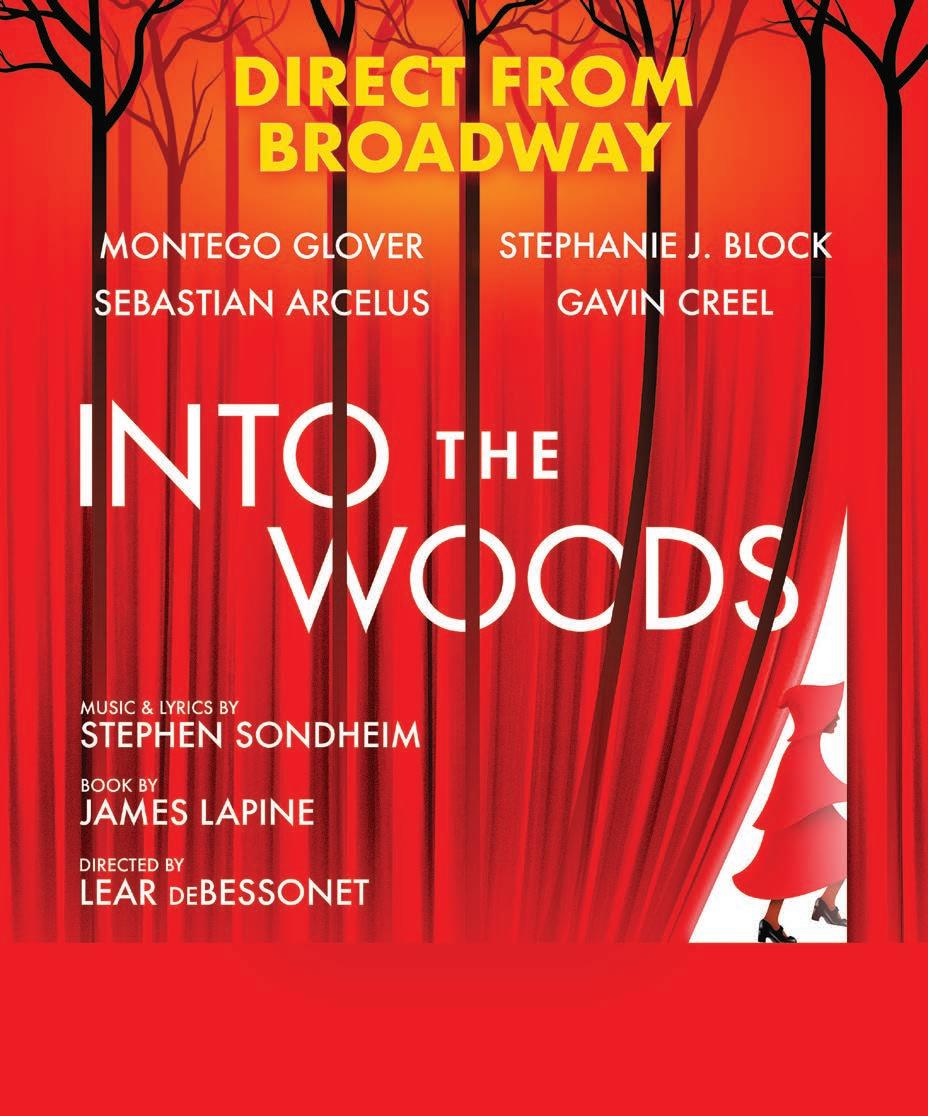
Creating custom pieces from existing jewelry is a nuanced process, the jewelers say. It’s more than just resetting a diamond. It’s listening to the client’s story — which can range from wistful to heartbreaking — and working together to make something that is modern yet meaningful.
“It can be a very emotional process,” McHugh says. “These are treasures people have passed down for generations. Which means one piece can carry generations of stories. I love being part of a design process that continues the story.”
Perry says what she loves about her job is seeing how new life can be breathed into something from more than 100 years ago.
“It’s pretty cool to see how something from the past can be transformed and passed down for even more generations to come,” Perry says. “We’re honored to be part of that process.”

No matter the style or story, jewelry can unite fragments of past generations — each piece stringing together narratives to create deeply personal expressions of who we are and who we continue to become.

For Jones, the ability to create a personalized memento honoring two things close to her heart — her mother, Margie, and her passion for gardening — was the best of both worlds.
“Repurposing my mom’s jewelry was a great option,” Jones says. “It’s one of my favorite pieces now. And it’s almost like getting a hug from my mom when I wear it.” SP

Sheryl Hallow 704.907.1144
$1,990,000 – Fabulous newer construction in 10-home enclave. 3BR/3.1BA, open plan, primary suite down. Close to SouthPark and Uptown.

Catherine Cauthen Turner 704.578.5551


$1,695,000 – Simonini built end unit w/3BR/3.1BA, open plan, library, 2 fireplaces, elevator, enclosed courtyard. Gated access to 2-car garage.
Heather Bonner 704.756.1394


$1,150,000 – Fully updated inside and out! Large lot overlooking the 9th fairway. Open floor plan, 5BR/3.1BA, gourmet kitchen, and oversized deck.
Luciana Merchant 704.659.1222


$1,100,000 – Elegant 2.5 story with 4BR/3.1BA on 0.86 acre. Many recent renovations, home theater, private backyard with an in-ground spa.

Peggy Peterson Team 704.904.6279
$845,000 – Lovely home on a quiet cul-de-sac overlooking Preserve Park. Primary suite down, 4BR/3.1BA, 2 story great room, and chef’s kitchen.
Katy Bradfield 704.965.5968




$855,000 – Charleston-style home w/4BR/3.1BA, chef’s kitchen, study, guest suite down, screened porch, paver patio, and detached 3 car garage.

Stacey Stolar 704.400.1539
$645,000 – Spectacular custom home is an entertainer’s dream! 4BR/2.1BA, primary suite down, saltwater pool, and beautifully landscaped.
Melanie Coyne 704.763.8003


$546,000 – Rare 3BR/2BA flat with fresh paint, new LVP floors, and updated light fixtures. Great storage, well-appointed kitchen, and double width balcony.

Terri White believes a lifelong sense of curiosity will serve her well as the recently installed president and CEO of the Charlotte Museum of History.

“People are drawn to museums to enter new worlds and discover the unfamiliar,” says White, who joined the museum last summer. “Museums allow people to learn and expand their understanding of the world around them. As a Black woman who grew up in the inner city of a Rust Belt town in the late ’80s, had I only looked at my immediate environment, I would have seen economic depression and limited opportunity.” White says her curiosity led her to the library and museums, exposing her to worlds beyond her purview. “Here at the CMOH, I’m looking to expand the window into Charlotte’s history and open new doors of discovery for the entire community.”
White, 39, comes to the museum after serving in development and operations roles at both the Heinz History Center and the Carnegie Science Center in Pittsburgh, Pa., and at the Smithsonian’s National Air and Space Museum in Washington, D.C. She arrived in Charlotte in 2019 after landing an operations position at Lowe’s.
She assumed the helm at the museum with a full-time staff of six, an annual operating budget of $800,000 and the legacy of a quiet history institution best known as the custodian for the late 18th century-era Hezekiah Alexander House. The 1774 home, the oldest in Mecklenburg County, is listed on the National Register of Historic Places. Known affectionately as the “Alexander Rock House,” it is the museum’s most identifiable asset and while remarkable and prized, the house presents challenges to expanding the identity and mission of the museum.
“There is a limited impression of the CMOH in much of the community,” White says. “Many think of us as simply the ‘Rock House.’ They came here on their third-grade field trip, and that is their lasting impression of the museum. And while the period surrounding the house is important, we’re not the Charlotte Colonial Museum of History. It’s our mission to tell so much more of the events and circumstances that have shaped our region.”
A key focus in reshaping the museum’s narrative is diversity and inclusion. History is always framed by its tellers, and the recent
strategic plan developed by the museum’s board of directors calls for the staff and programming to more fully represent the diverse makeup of the Charlotte community.
Dee Dixon, president and CEO of Pride Communications, is immediate past board chair at the museum and was the first Black woman in its history to hold that position. “I’m excited about bringing greater diversity to our staff, board and in our programming to allow for more comprehensive backstories on what gives our region its unique sense of place,” Dixon says. “Terri’s experience, operational skills and talents bring a dynamic energy to the museum. We’re very pleased to expand the understanding of Charlotte’s cultural fabric.”
Several initiatives are underway to extend CMOH’s reach into the community. None will make a greater impact than the relocation and restoration of the Siloam schoolhouse, a historic 1920s Rosenwald-era, one-teacher classroom building that once served Black children in then-segregated Mecklenburg County. Currently resting in disrepair at its original site in University City, the building will be moved to the museum’s 8-acre campus later this spring. The renovation will take 18-24 months. A recent $500,000 grant from Charlotte’s Gambrell Foundation brings the project’s fundraising total to $1.2 million, exceeding its original $1 million goal.



“Once the Siloam School is moved to the museum’s campus and restored, it will become a very visible and tangible part of our mission to save and share Charlotte’s history in all its fullness and diversity,” White says. Exhibits about the Black experience and community and educational programs are in development for the schoolhouse upon opening.
More recent history is also slated for exploration. Later this year, CMOH will showcase a mural on canvas depicting the Mecklenburg Declaration of Independence, painted by noted American muralist Eugene Montgomery. Originally commissioned in 1949 by retailer Sears, Roebuck & Co. for its uptown location (now home to the VAPA Center), the artwork measuring 73 feet by 6 feet has hung in the library at South Mecklenburg High School for the last five decades. Only a handful of the murals Montgomery painted still exist. The museum will exhibit the mural briefly this fall ahead of its restoration.
White is excited about the museum’s forthcoming exhibit showcasing the National Negro Opera Company. The company, founded in 1941 by Madison, N.C., native Mary Caldwell Dawson, was the first commercially successful Black opera company in America.
“Our exhibit, which features original opera company costumes on loan from the Heinz History Center, opens in January 2024,” White says. “It will remind people that this organization, with its under-told influence on American music, was founded by a Black woman from rural North Carolina.” Opera Carolina is partner-

ing with the museum and is working with the renowned soprano Denyce Graves and her foundation to bring the original musical highlighting NNOC to Charlotte.

Continuing its focus on inclusivity and expanding its community reach, the museum plans to partner with local nonprofit Comite de Fiestas Patrias y Tradiciones de Charlotte and Norsan Media to celebrate various independence days for countries with significant Latin American populations in Charlotte. Hosting events on-site will expose new generations of visitors to the museum, White says. “In addition to the cultural celebrations, we are working on Spanish-language oral histories, artifact collection, and have a volunteer group to offer Spanish translations for our exhibits.”

To engage with Charlotte’s Asian community, as an initial step the museum will screen two documentary films chronicling life for Asians in the American South later this year.
The history and cultural impact of sports is a favorite topic for White. She’s already made inroads with Charlotte professional sports teams and expects soon to announce collaborative projects.
In the interim, she’s staying curious and continually asking the question of how Charlotte has become the city it is today. The answers are the stories she wants the museum to tell.
“If people thought they knew what the CMOH was about, they don’t,” White says. “Come look at what we are doing. There’s a world of discovery here.” SP


Jason Zehmke moved from his home in South Africa to the United States to play rugby more than 20 years ago, but he never expected his passion would lead him to start a nonprofit around the game.
“There was one club in Charlotte where we were all coaching, but we felt like Charlotte was too big not to have another rugby club,” Zehmke says. “And we wanted to focus on the outreach part — reaching kids that don’t generally play the sport, while also providing a community service.”
Zehmke, who lives with his wife and their four children in SouthPark, is president and founder of the Charlotte Cardinals Rugby Club. The nonprofit club focuses on making the sport more inclusive and more fun, and giving back to the community.

“Far too many for-profit sport teams churn kids out of the system, and it’s just about winning,” he says. “We didn’t want to do that. At the same time, we wanted to teach them that we have to do more for the community. Giving and community service is taught.”
The club, which is run by volunteer coaches and is open to boys and girls from elementary through high school, just wrapped its inaugural season. As part of the North Carolina Youth Rugby Union, participants mainly compete against teams from the Carolinas and Georgia.

The club hosts regular food, school-supply and clothing drives. The Peter Zehmke Foundation, named in honor of Jason’s late father, a South African rugby player, provides rugby equipment and clothing for all Charlotte Cardinals in need, as well as players from other local teams.
While there is a small fee to play with the club, anyone who needs a scholarship gets one, Zehmke says.
“We had 190 kids last year in our first season, and 50 of the players received full or partial scholarships,” he says.
Myers Park High Senior Nick LeGrande has been playing rugby since sixth grade and joined the club last year, in part because he loved the element of giving back through sport.
“I think it’s great, and it also shows how rugby can bring people together and help make new friends,” he says. Playing for the new club has also deepened his love for the sport. “I wanted to join because I wanted to try something new. When I was playing for [my other team], it was just winning and we barely had to prove ourselves. But with the Cardinals, nobody knew about us, and we wanted to start over and just earn our way up to the top.”
In its first season, the Cardinals are already working their way to the top, with several championship wins in various divisions and 28 players earning college scholarships.
Zehmke says other rugby clubs across the country are starting to take note of their give-back model and replicating it. He couldn’t be prouder.
“It’s bloody amazing to see it starting to reach these other clubs, and it’s such an easy thing to do to give back,” he says. “It’s two loves for me personally — I am so passionate about rugby and getting kids to play the sport, but at the same time, I’m passionate about doing outreach. And it just feels great.” SP


















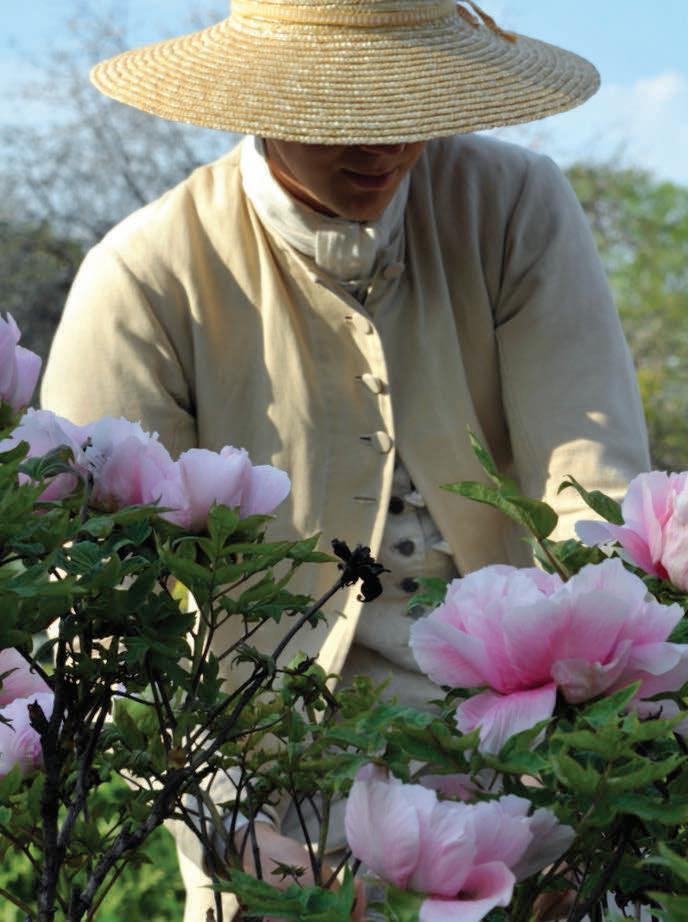






Restaurant Constance is open in Wesley Heights, with a seasonal menu highlighting local ingredients, a raw bar, and meat and seafood entrees. Expect dishes like oysters on the half shell, tuna crudo with soba noodles and crispy ginger, marinated scallops, and short ribs with sweet potato fondue. The concept from Your Farms Your Table Restaurant Group is named for chef/owner Sam Diminich’s daughter and has a coastal farmhouse aesthetic. Restaurant Constance is teaming with Wentworth & Fenn on the dessert program and also offers an extensive selection of nonalcoholic beverages. The restaurant is open for dinner 5-10 p.m. Tuesday-Saturday.

2200 Thrift Rd., restaurantconstanceclt.com Bossy Beulah’s Chicken Shack opened its second Charlotte location in South End at 2932 Griffith St. The 2,400-square-foot restaurant is twice the size of its original Freedom Drive location and features a pickup window, indoor and outdoor bar and seating for 146. Paper Mill Pub will open this summer at Truist Field. The name is an homage to the Virginia Paper Company, which occupied the baseball field site until 2012. The year-round pub will have patio seating, an indoor bar and a second-floor space with uptown views.


Childrenswear boutique Coco Leto opened at 2902-B Selwyn Ave. cocoleto.com Womenswear brand Veronica Beard is opening at Phillips Place, its first standalone store in North Carolina. SouthPark Mall relaunched its personal shopper program, led by wardrobe consultant Suzanne Libfraind. After an initial consultation, Libfraind will shop with or for customers for up to three hours; each additional hour is $115. Interested customers can email suzanne@suzannelibfraind.com.
Palestra Boutique Spa moved to the Hyatt Centric Charlotte SouthPark at Apex SouthPark from its original location in Cherry. The spa offers massage therapy, facials, lash and brow services, and more. palestraboutiquespa.com
More than 600 members of Charlotte’s Jewish community gathered Jan. 19 to encourage the local community to support the Jewish Federation of Charlotte’s Outshine Hate initiative. The mission of the initiative is to put an end to antisemitism through education and unity. Juju Chang, co-anchor of ABC’s Nightline, was the featured speaker. The Harris YMCA unveiled a fitness-center renovation, including expanded free weight and heavy lifting spaces and open stretch areas, along with new strength machines, cardio space and more. Oakworth Capital Bank will open its first North Carolina office in mid-2023 at SouthPark Towers. The Birmingham, Ala.-based bank was founded in 2008 and has four branches in the Southeast. Oakworth offers commercial and private banking, wealth-management and advisory services. Local financial-industry veteran Tim Beck is Oakworth’s central Carolinas market leader. SP
Pablo Picasso & Rozeal at TFA Advisory + Gallery
Through March 7
To mark the 50th anniversary of Picasso’s death, the gallery presents a sampling of his work in conversation with the works of Rozeal, a contemporary American painter known for traditional ukiyo-e (woodblock) print techniques that meld Japanese folklore, geisha, kabuki and samurai imagery with hip-hop references and Black culture. tfa-advisory.com
Renaissance of Brooklyn: History is Present at Brooklyn Collective
Through April 20
This group exhibition is curated by author and lecturer Yvonne Bynoe. Artists, including Nellie Ashford, Clarence Heyward, Steven M. Cozart and Kalin Renee Devone, share perspectives as Black Charlotteans. brooklyncollectiveclt.org
Visions: A Study of Form at the Harvey B. Gantt Center
Through May 21
This exhibition of more than 30 works from the 1930s through the 1980s examines Black artists’ explorations of natural and abstract forms using a range of media. ganttcenter.org
Come From Away
March 7-12
This Broadway musical tells the true story of what happened when 7,000 passengers become stranded in a small Newfoundland town following 9/11. A clash of cultures, fears and frustration eventually gave way to something beautiful. blumenthalarts.org
Andrew Leventis: Refrigerate After Opening at SOCO Gallery
March 8 - April 26
This exhibition focuses on Charlotte artist
Andrew Leventis’ refrigerator series, which he started during the pandemic. Leventis’ hyper-realistic still life paintings are a modern version of the traditional vanitas genre, depicting items that remind the viewer of the transience of life. socogallery.com

Green River Revival
March 11 I 9 a.m.
Watch as the Whitewater Center’s resident leprechaun transforms the river green for St Patrick’s Day. Start the day with the Color Me Green 5K Trail Run before rafting down the river and listening to live music. usnwc.org
An Evening with Leslie Odom Jr.
March 13
The Tony- and Grammy-award winning vocalist and actor takes the stage with his band to perform a mix of jazz-influenced soul, pop and more at Knight Theater. Tickets start at $39.50. blumenthalarts.org
Charlotte Symphony: Star Wars Return of the Jedi in Concert
March 17-18
The original Star Wars trilogy comes to a dramatic conclusion as the Empire and Rebel Alliance battle on the big screen with John Williams’ legendary score performed live. Belk Theater. charlottesymphony.org
Sip and Paint: Spring has Sprung at Daniel Stowe Botanical Garden
March 18 | 11 a.m-1 p.m.
Capture the beauty of spring in this painting class for all skill levels. Supplies are included, along with wine, lemonade and snacks. Admission is $50; members receive a 15% discount. dsbg.org
N.C. Bridal & Wedding Expo
March 19 | 12-5 p.m.
Dozens of vendors will be on hand —
florists, venues, photographers and more — to help plan your big day. ncbridalexpos-pe.com
Buddy Guy: Damn Right Farewell
March 22 I 7:30 p.m.
At 86, Buddy Guy is still rocking the blues on his guitar. The Grammy-award winner and Kennedy Center honoree brings his legendary sound to Ovens Auditorium. Tickets start at $55. ticketmaster.com
Legally Blonde - The Musical at Ovens Auditorium
March 24-26
This Broadway tribute to girl power takes the audience from a UCLA sorority house to the halls of justice at Harvard. It’s the comingof-age story of Elle Woods, who uses charm and ingenuity to tackle life’s problems and challenge stereotypes. blumenthalarts.org
Symphony Guild of Charlotte Heart of the Home Tour
March 31-April 1
Enjoy food, craft cocktails and live music from members of the Charlotte Symphony Youth Orchestras while touring some of Charlotte’s most stylish private homes. Tickets are $35. symphonyguildcharlotte.org
Charlotte SHOUT!
March 31-April 16
This annual, multiweek festival celebrates creativity and innovation through art, music, food and ideas with installations throughout uptown. And yes, the popular “Impulse” installation of seesaws will return to Levine Avenue of the Arts. charlotteshout.com SP
Scan the QR code on your mobile device to view our online events calendar — updated weekly — at southparkmagazine.com.



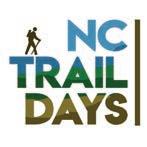




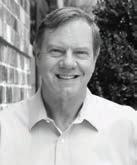



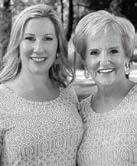

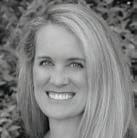

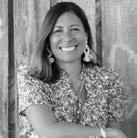



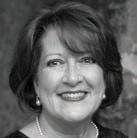

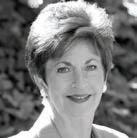
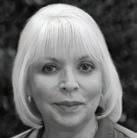


privately owned real estate company in the country and founding member of Leading Real Estate Companies of the World ® and Luxury Portfolio International ®







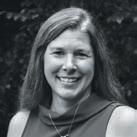




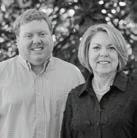


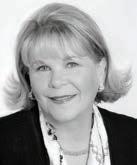

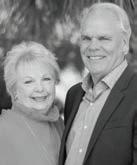


ANTOINE WILLIAMS FORGED HIS OWN PATH TO BRING HIS ART TO LIGHT.

 by Liza Roberts
by Liza Roberts
Antoine Williams was in his early 20s when he made an important decision: If he wanted his work to be seen, he’d have to take matters into his own hands. He’d earned a fine arts degree from UNC Charlotte in 2003 and was busy making multimedia work including drawings, paintings and collages that responded to the world around him: about politics, about the war on terror, about “how ridiculous all of it was.” But to Williams, the traditional gallery route seemed impenetrable. Not only to him, but to the other young artists he knew, many of them also young, politically active Black men without a network in the established world of art. “People were literally afraid of us. We were walking into galleries, and I remember one gallery. I asked: Can we do an art show? And they were like: We don’t have metal detectors,” Williams says. His friends, including multimedia artists and illustrators Marcus Kiser, John Hairston Jr. and Wolly Vinyl, had another hurdle, too. Traditional art venues weren’t the obvious places for the audiences they sought. They wanted to connect with people who were also influenced by art, comics, music and culture. They were eager for
dialogue and weren’t sure they’d find it in a gallery. “A museum can be a scary place if you’ve never been there,” Williams says.
A first-generation college student from “rural, working-class, conservative” Red Springs, N.C., Williams never knew an artist or much about art growing up — but his imagination was allowed to flourish. “It was cool to be a creative kid growing up in a place where you could run outside and go in the woods and play,” Williams says. “I was always daydreaming, and I was always either drawing or making stuff.”
He tapped into that wellspring when he cofounded the art collective God City in 2005 with Kiser, Hairston, Vinyl and a few other artists. The group rented industrial spaces, put together pop-up shows and got the word out with flyers. “We were really into hip-hop, politics and comic books,” Williams says. “We would do exhibitions … in any place that would take a bunch of young Black dudes.” Over a seven-year run, the group forged collaborations with poets, filmmakers, dancers and DJs. “It was all these groups of Black and brown people making art outside the major institutions,” Williams
says. “It became a community in Charlotte … It was this really beautiful time.”
The establishment took notice. Kimberly Thomas, a former curatorial assistant at The Mint Museum, became a God City regular. In 2008, she included work by Williams and Hairston — as well as art from nationally recognized Black North Carolina artists like Juan Logan and the late Romare Bearden — in a 2008 exhibition about contemporary portrayals of Black masculinity called Scene in America The exhibit included Williams’ “I Wanna Kill Sam,” a graphite and acrylic representation of a Black man shouting before a backdrop that could be part of an American flag. It’s about “the frustration of being caught within the system, the system that you don’t fully understand, but that you do know is not working,” Williams says.
Since then, Williams has not struggled to get his art seen. Addressing cultural identity, signifiers of class, race and power, and the stories and myths society tells about them, his work incorporates drawing, painting and collage. Most recently, Williams says, he is focused on “Black folklore and other narratives” and is making art that “relates to Black people and movement to spaces of liberation.” The works shown on these pages incorporate these themes and will be exhibited at the Turner Carroll Gallery in Santa Fe, N.M., later this year. Also in 2023, Williams will have four murals installed in Washington, D.C., as a recipient of the National Academy of Design’s Abbey Mural Prize.

“A Moment of Rest While Convincing Monsters That I Am Human,” a drawn mural created for a giant wall at the entrance to the Southeastern Center for Contemporary Art (SECCA) in Winston-Salem last year, was made following the nationwide uprisings over the murders of George Floyd and Breonna Taylor, an effort to depict both the injustice and the exhaustion of that fight. “Those marches were for the bare minimum, just so that the justice
system would work,” Williams says. “Not that it would do anything extraordinary — just work.” The mural depicts a man hunched over beneath a mountain of clothes, which Williams says indicates “how absurd it is, but also how exhausting it is.” Hoodies, jeans and sneakers refer to the distorted, negative stigma society puts on these signifiers of young Black men; the enormous pile indicates how they “constantly have to deal with the piling on of these perceptions.” The burdened figure persists, but pauses, “needing to take a break, and reclaim humanity,” Williams says.

Williams’ work has been exhibited at the North Carolina Museum of Art, Greensboro’s Weatherspoon Art Museum and at Raleigh’s Contemporary Art Museum (CAM). He has had prestigious residencies and fellowships at Duke University and the McColl Center. Most recently, he was an artist in residence at the Joan Mitchell Center in New Orleans, where he created sculptural work inspired by a quote from the author Octavia Butler: “There’s Nothing New / Under the Sun / But There Are New Suns.” Last July, Williams took a tenure-track job teaching art at the University of Florida.
Having his work at SECCA and around the country was just the kind of broader visibility Williams sought through God City and an MFA at UNC Chapel Hill in 2014. But he resists the idea that he’s now part of any kind of art establishment. “I just always feel like an outsider,” he says. “I’m still very much the little kid running through the woods in Red Springs, hanging out at the car wash or playing basketball, hanging out with my parents or cousins. I always sort of feel that’s who I am. But I understand that I am in a different place as far as my career.”
Still, Williams says, “I don’t feel I’ve achieved success. I’m just working.” SP

The first time I met Charles Frazier was in Asheville back in spring 2016. Along with several other authors, we had been invited to participate in a fundraiser at the Asheville Community Theater. I knew most of the authors there that evening, but I didn’t know Charles, and I was nervous about meeting him. Like most people in the world, I had read Cold Mountain after it won the National Book Award in 1997, and then I saw the Oscar-winning film, which starred Nicole Kidman, Jude Law and Renée Zellweger, when it was released in 2003. I’d read the two novels he’d published in the intervening years. My love for them only contributed to my nervousness at the idea of meeting their author.
But apparently Charles Frazier wasn’t one bit nervous about meeting me. He walked right up to me backstage and said, “I was up in Hot Springs a few months ago, and I saw that you were scheduled to do an event in town. I left a note for you at the public library. Did you get it?”
Reader, I was too shocked that Charles Frazier even knew who I was to be shocked by his reliance on paper technology. Needless to say, we’ve been friends ever since. He joined me onstage a year later for an in-conversation event for the launch of my novel The Last Ballad, and I did the same for him when his novel Varina was released in 2018. We’ll be back onstage together on April 10 on the campus of
UNC Asheville for the launch of his latest novel, The Trackers, a book that will both please and surprise fans of Charles Frazier.
There’s an old saying that serious writers never write the same book twice, and Charles never has, but he has almost always written about the same places — Appalachia and the southern United States. The surprise that’s in store for readers is that The Trackers, which is set in Depression-era America, ranges far afield, from the swamps of Florida to the big skies of Wyoming to the sooty factory towns and transient camps of the Great Northwest. But readers who loved Charles’ previous novels will find echoes of those works in his new one. Like Cold Mountain, The Trackers is the story of a man on a quest. WPA mural painter Val Welch is in pursuit of Eve Long, the wife of a wealthy rancher who has absconded with a priceless piece of artwork, and like Thirteen Moons (2006), the new novel is awash in era-appropriate research from automobiles to art and architecture to the politics of the New Deal. Like Nightwoods (2011), The Trackers expertly employs noir tropes like tight, scene-driven dialogue and dark, ominous settings, and like the titular character in Varina (2018), Eve Long is a dashing, magnetic heroine: a former runaway turned traveling honky-tonk singer who finds herself married to a wealthy political hopeful before pulling the plug on it all and disappearing without a trace. Her husband, who is sponsoring Val’s mural project


in a local post office, makes Val a financial offer he can’t refuse: track Eve and find out where she is, why she left, and, most importantly, who she really is.
According to Charles, it was nearly 10 years ago when the idea for the novel that became The Trackers first came to mind.
“We were up in Boone, and I was just killing time,” he says. “I visited the post office, which has one of those Depression-era WPA murals. After that I had more time to kill, so I went to the library at Appalachian and looked up information about WPA projects, specifically the Treasury Department art projects. One of the first images I saw was a photograph taken inside one of those small post offices, and there was a mural in progress on the wall with two young guys working on it. Standing on the floor looking up at them was an older guy and a woman. They were both well-dressed, and I thought, OK, there’s a story here.”
As the story rattled around in his mind over the following months and years, Charles dispatched with one of the two mural artists and focused on a single artist and how he might interact with the wellheeled couple who were watching him work. Artist Val Welch and rancher Jake Long and his mysterious wife Eve were born.
Charles and I are standing in the mid-century modern house he and his wife, Katherine, own in Asheville, a home that’s not quite ready for them to inhabit. Like many people in post-pandemic America, they’re waiting on the right contractor to come along to update the house and make it fully habitable. For now, Charles has set up a writing desk in the light-filled living room, a stone fireplace against one wall and tall windows opening to the yard, where, despite it being mid-January, the view is alive with greenery.
I think about Inman, Ada and Ruby, the three characters who drove the narrative in Cold Mountain, and ask Charles if there’s something that spoke to him about using a similar triangulation of characters in The Trackers
“Well, that’s one of the things that appealed to me while writing this book. I could keep a handle on the relatively limited number of characters because I have a problem sometimes with expansion,” he says. “Having that very clear arrangement of characters helped me keep it under control and forced me to focus on trying to keep the book short. But, in The Trackers, Eve is the reason the triangle exists. I never lost sight of her as the main character.”
Eve is no doubt the main character. Even when she’s not on the page, her presence drives the action and tension. And even though this book is relatively short in comparison to some of his longer novels, many of the scenes feel expansive because Charles allows them to breathe and exist as the reader witnesses them in what feels like real time. One scene that comes to mind unfolds over a long night in the swamps of Florida when Val encounters Eve’s former in-laws, a dangerous band of lawless folks who are as suspicious of Val’s outsider status as they are of his questions about their former daughter-inlaw’s whereabouts.
“That was a really fun scene to write,” Charles says. “It was fun to get that rhythm, that really slow, heavy rhythm to the dialogue and pacing. This is the point in the novel when Val is beginning to learn that he is truly in over his head.”
There were points in writing The Trackers when Charles began to fear that he was in over his head too, especially when the pandemic struck and he could not make use of the location scouting that had benefited all of his previous novels and brought the realities of place and landscape to the page. But he had an ace or two up his sleeve when writing about the West and about Florida: he and Katherine spent the bulk of the 1980s living in Colorado with their young daughter, and after Cold Mountain was released, they resided full time on a horse farm in central Florida. Of course the process of writing The Trackers was full of research, but when you read the novel and encounter far-flung Western states, the boggy swamps of Florida and people who understand horses intimately, you are encountering worlds that Charles Frazier knows well.
If you read the novel, you might also be reminded of a literary genre Charles also knows well: the travel narrative, which his novels certainly borrow from, especially Cold Mountain and Varina. But it is his lesser known first book, Adventuring in the Andes, a travel guide published by the Sierra Club, that most reflects his love for the genre.
During the long years of writing The Trackers, especially during the Covid lockdown, travel was on Charles’s mind, and he was itching to get out West and look around, but he found himself settling for photographs, music and art that was resonant of the West in the 1930s, especially Woody Guthrie and Diego Rivera. But writing a novel as complex and rich as The Trackers is hard, and it takes a long time despite how many books you’ve published before or how many millions of copies they’ve sold.
“It doesn’t get any easier,” Charles says. “At least it hasn’t gotten any easier for me. And I’m just an enormously disorganized writer. Every time I finish a novel I’m a little bit surprised.”
As if to give insight to the expanse of hours spent at his desk, he shows me the tiny slips of paper he uses to record his word counts along with the dates of his daily writing sessions. When I look at his handwriting I can’t help but be reminded of the note he left for me in Hot Springs years earlier, and I wonder how Val Welch would go about tracking it down.
Well, I’m no tracker. So, to the people of Hot Springs, N.C., if you find a little slip paper that contains a message that Charles Frazier wrote to Wiley Cash years and years ago, do me a favor, hang onto it until I’m back in town. SP
Wiley Cash is the Alumni Author-in-Residence at UNC Asheville. His new novel, When Ghosts Come Home, is available wherever books are sold.

Explore landscapes through the brushstrokes of Pablo Picasso in this first-of-its-kind museum exhibition.

Picasso Landscapes: Out of Bounds is generously presented in Charlotte by Bank of America, the City of Charlotte, Duke Energy, Mecklenburg County, M.A. Rogers, Ann and Michael Tarwater, North Carolina Arts Council, and Moore & Van Allen. Additional generous support is provided by: Leigh-Ann and Martin Sprock; Robin and Bill Branstrom, Sally Cooper, Laura and Mike Grace, Marshelette and Milton Prime. In-kind exhibition support provided by World Affairs Council of Charlotte. The Mint Museum is supported, in part, by the Infusion Fund and its generous donors. Picasso Landscapes: Out of Bounds is organized by the American Federation of Arts with guest curator Laurence Madeline, with the exceptional support of the Musée national Picasso-Paris. The exhibition is generously supported by Monique Schoen Warshaw. Additional support has been provided by Betsy S. Barbanell, Lee White Galvis, Clare E. McKeon, and Stephanie R. La Nasa. Support for the accompanying publication provided by Furthermore: a program of the J.M. Kaplan Fund. Picasso Celebration 1973-2023: 50 exhibitions and events to celebrate Picasso. IMAGE: Pablo Picasso (Spanish, 1881-1973). View of Notre-Dame, Paris, April 13, 1945, oil on canvas. Private Collection, courtesy of Chalk & Vermilion, LLC. © 2023 Estate of Pablo Picasso / Artists Rights Society (ARS), New York
Mint Museum Uptown at Levine Center for the Arts | 500 South Tryon Street, Charlotte, NC 28202 | 704.337.2000 | mintmuseum.org | @themintmuseum
Someone once said to me it’s not happiness that makes one grateful, but gratitude that makes one happy.
Looking back, I may have seen this poetic syllogism scrawled on an ancient stone wall several years ago while hiking with my wife in Tuscany (where every graffiti artist is a philosopher-in-training). Or maybe I heard Oprah Winfrey say it in one of her SuperSoul Conversations that the aforementioned wife suggested I listen to on long drives.
Whoever said it, I’m grateful for its pithy wisdom, because I’ve suddenly reached an age where I know it to be true.
Back in February, I turned 70 — a milestone that took me by surprise.
It’s not that I was unprepared. In truth, I’ve enjoyed getting older and slowing down a bit, giving me the chance to notice the evening sky.
Also, I am not alone in this epic journey into the great gray age and the unknown, as my late father — who lived a full and active life right up to a week before he died at 80 — used to joke. According to the U.S. Census Bureau, there are 69.2 million baby boomers alive and kicking today in America, the second-largest population group next to our children, the millennials (73.9 million born between 1981 and 1996). My particular group was born in 1953 and falls somewhere in the lower middle of the boomer years between 1946 and 1964.
According to the latest actuarial projections used by our friends at the Social Security Administration to calculate how much longer the agency will have to give us back all the money we spent decades putting into the system, my age and gender group — males aged 70 — can expect to live another 14.5 years, while our female counterparts come in at a 16.75. Good for them, I say! Sell the house, dump the stocks, give away the dog and go sit on a beautiful beach in Tahiti for the rest of your days.

By the way, that’s exactly what my wise but cheeky and younger wife Wendy says she plans to do with her giddy 10 extra years after I check out of the Hotel California.
Meanwhile, according to the CDC’s Center for Health Statistics, life expectancy at birth in the United States declined nearly a full year from 2020 to 2021, a worrying dip from 77.0 to 76.1 years. It’s the lowest level since 1996, probably due in part to a thing called Covid. The .9-year drop in life expectancy in 2021, along with a 1.8-year drop in 2020, was the biggest two-year decline since 1921–1923, when the Spanish flu wiped out millions worldwide, including my own maternal grandmother.
It could be worse, of course. Afghanistan’s current life expectancy is just a hair over 56 years, considerably shorter if the Taliban morality police catches you whispering about the need to educate girls and women.
Singapore’s life expectancy, on the other hand, is a bonny 86.5







years. Perhaps this means that Dame Wendy — the future merry widow — should consider moving there instead of Tahiti (which has a mere life expectancy of 78.82 years) where she’s likely to make lots of older gal pals living the good life off the insurance money on a lovely Asian beach.


The point of all these dizzying numbers, as Oprah or any Tuscan street poet with spray paint can tell you, is to live the best life you can and be damned grateful for whatever time you have left.
That’s exactly what my fellow members of the Stuffed Potatoes Lunch & Philosophy Club try to do on a daily basis. For the moment, there’s just three of us in the club. We meet every other week or so in the shadowy booth of a popular restaurant to discuss the current state of the world, the wonders of our grown children, and the enduring mystery of our wives.
Remarkably, as this March dawns, all three of us will have turned 70 by the end of the month. Joe hit the mark in late January, I did so in early February, and Patrick achieves the milestone later this month.
I’m told none of us actually looks 70 years old, though wives, golf pals and fellow Stuffed Potatoes can scarcely be considered objective sources. For that matter, we probably don’t even act like old men, save for when we complain about dodgy knees and idiots who run red lights. As a kid, I once asked my lively grandmother on her 84th birthday if she was afraid of dying. She grinned and patted my rosy little cheek. “Not a bit, sugar pie,” she said. “Just afraid of falling.”
None of the Stuffed Potatoes, I can reliably report, are afraid of dying. We’re too busy for that. January Joe is a professional forester helping set aside beautiful lands for future generations. Patrick, the marketing whiz — I fondly call him the “Irish Antichrist” — is keeping the national economy afloat. And I’m just a humble scribbler trying to finish three books this year alone.
Given that we collectively amount to 210 years of accumulated life experience, I put to my fellow Stuffed Potatoes a timely question the other day: What is the one thing you’ve learned in 70 years?
January Joe, our resident sage, didn’t hesitate. “There are wonders ahead. Don’t fight them — just surrender!” This from a lovely fellow who gets to walk in the woods for a living and surrenders most weekends to joy of several beautiful grandbabies.
My old friend Patrick offered with a hearty laugh, “There’s no good news or bad news. It’s all information. Just keep doing what you do and don’t look back.” The Irish Antichrist means business.
As for me, I hope to finish at half a dozen more books over the 15.5 years I may or may not have left. Only time will tell.

In the meantime, we have a joyous new puppy named Winnie and a garden that is springing gloriously back to life by the minute. I’m deeply grateful for both, not to mention a fabulous wife who says she really has no interest in going to Singapore or Tahiti. And was probably only joking.
That makes me a really happy guy. SP







William Waters grew up in a house silenced by tragedy, where his parents could hardly bear to look at him, much less love him. So when he meets the spirited and ambitious Julia Padavano in his freshman year of college, it’s as if the world has lit up around him. With Julia comes her family, as she and her three sisters are inseparable: Sylvie, the family’s dreamer, is happiest with her nose in a book; Cecelia is a free-spirited artist; and Emeline patiently takes care of them all. With the Padavanos, William experiences a newfound contentment; every moment in their house is filled with loving chaos.
But then darkness from William’s past surfaces, jeopardizing not only Julia’s carefully orchestrated plans for their future, but the sisters’ unshakeable devotion to one another. The result is a catastrophic family rift that changes their lives for generations.
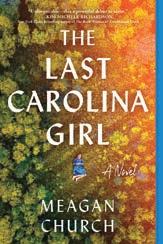
For 14-year-old Leah Payne, life in her coastal Carolina town is as simple as it is free. Devoted to her lumberjack father and running through the wilds where the forest meets the shore, Leah’s country life is as natural as the loblolly pines that rise to greet the Southern sky. When an accident takes her father’s life, Leah is wrenched from her small community and cast into a family of strangers with a terrible secret. Separated from her only home, Leah is kept apart from the family and forced to act as a helpmate for the well-to-do household. When a moment of violence and prejudice thrusts Leah into the center of the state’s shameful darkness, she must fight for her own future against a world that doesn’t always value the spirit of a Carolina girl.
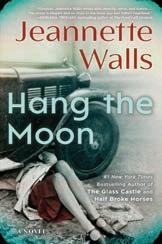
Sallie Kincaid is the daughter of the biggest man in a small town, the charismatic Duke Kincaid. Born at the turn of the 20th century into a life of comfort and privilege, Sallie remembers little about her mother who died in a violent argument with her father. By the time she is just 8 years old, the Duke has remarried and had a son, Eddie. While Sallie is her father’s daughter, sharp-witted and resourceful, Eddie is his mother’s son, timid and cerebral. When Sallie tries to teach young Eddie to be more like their father, her daredevil coaching leads to an accident, and Sallie is cast out. Nine years later, she returns, determined to reclaim her place in the family. That’s a lot more complicated than Sallie expected, and she enters a world of conflict and lawlessness. Sallie confronts the secrets and scandals that hide in the shadows, navigates the factions in the family and town, and finally comes into her own as a bold, sometimes reckless bootlegger.
The United States, the richest country on Earth, has more poverty than any other advanced democracy. Why does this land of plenty allow one in every eight of its children to go without basic necessities, permit scores of its citizens to live and die on the streets, and authorize its corporations to pay poverty wages? In this landmark book, acclaimed sociologist Matthew Desmond draws on history, research and original reporting to show how affluent Americans knowingly and unknowingly keep poor people poor. Those of us who are financially secure exploit the poor, driving down their wages while forcing them to overpay for


housing and access to cash and credit. We prioritize the subsidization of our wealth over the alleviation of poverty, designing a welfare state that gives the most to those who need the least. And we stockpile opportunity in exclusive communities, creating zones of concentrated riches alongside those of concentrated despair. Elegantly written and fiercely argued, this compassionate book gives us new ways of thinking about a morally urgent problem. It also helps us imagine solutions.
A funny, sharply observed novel of family, wealth, love and tennis, this zeitgeisty debut follows three women in an old Brooklyn Heights clan: one who was born with money, one who married into it, and one, the millennial conscience of the family, who wants to give it all away. Rife with the indulgent pleasures of affluent WASPs in New York and full of recognizable if fallible characters (and a couple of appalling ones), it’s about the peculiar unknowability of someone else’s family, about the haves and have-nots and the nuances in between, and the insanity of first love. Pineapple Street is a scintillating, wryly comic novel of race, class, wealth and privilege in an age that disdains all of it. SP

Sally Brewster is the proprietor of Park Road Books. 4139 Park Rd., parkroadbooks.com.

While there is to attend, our guests will be asked to make a tax-deductible gift to support our work with children & families.





 by Juliet Lam Kuehnle
by Juliet Lam Kuehnle
Hi, I’m Juliet and I’m a therapist who goes to therapy.
I get asked all the time how someone can know it’s the right time to go to therapy.
Spoiler alert: There’s never a wrong time.
You go to the doctor for checkups for your physical health, and perhaps you go to church, meditate or walk in nature for your spiritual health — so why should mental health get left out? Our mental health is foundational to everything we do and yet, largely because of stigma, people still carry a lot of shame and misconceptions. As humans who are constantly evolving, tending to our mental health simply ensures we are doing so at our full capacities. We can flit through life on autopilot without a lot of awareness or we can be more purposeful and intentional. Doing so alongside a therapist can make it that much more powerful and sustainable.
I’ve addressed a few frequently asked questions about what therapy is and how to do it:
This is a very unique and individualized thing that can come to people at different points in their lives. Some people will wait until they’re in crisis and are in desperate need of help. Some people come to therapy as a proactive measure, for deeper self exploration, self-awareness, and to learn some tools and improve relationships. Either of those reasons — and everything in between! — is fine.
What is therapy all about?
“Ms. Lam, stand up tall. Do not shrink for anybody.” It is my favorite, not-so-humble brag that I’ll tell anyone who will listen. I got to take a college course with the Dr. Maya Angelou when I was at Wake Forest University. I was taking a picture with her at the end of the semester, and I thought I’d crouch down to be in the frame next to her as she sat. But, no. She encouraged me that day (and every day that I remember her words) to stand tall and take up space. I also got to go to her house not once, but twice. I don’t really remember what we talked about. But many of you know Dr. Angelou’s wisdom of never forgetting how people make you feel That, I remember. In her presence, I felt heard, self-assured, settled, introspective, confident, inspired and stirred.
This is how I feel as a client in therapy, too. Therapy is a place you can just show up and be. No pretense, pretending or judgment. Where else can we unabashedly do this? We’ve gotten really good at protecting ourselves and showing up as others expect us to be. In therapy, there is truly no judgment around what’s happened to you, what choices you’ve made, or what you have to say. It’s all about deepening awareness and making sense of things to navigate the present day as fully as possible.
What’s it really like in a therapy session?
A lot of us have an image of lying on a couch talking to some old guy who’s writing copious notes with some “hmmms” and
“how does that make you feel?” sprinkled in. If that’s what you’re interested in, I’m sure you can find it, or any other vibe you might prefer. My style is very casual and conversational and we’re getting a lot done. Much of showing up as a therapist is an art. The best therapists are intuitive and know just what to do with the energy in the room and the energy the client is emitting or resisting. A good therapist knows when to interject with a thought, prompt the client to stay with a feeling, recall names the client has mentioned in previous stories, connect parts of your story to larger themes, allow silence and so much more. Therapy is a collaborative process in which the therapist walks with you in your story and in your journey toward growth, healing, balance and greater self-awareness.
How do I find a therapist?
There are a lot of great therapists out there, but how do you find the right fit for you? One place to start is by asking for referrals from people in your trusted network. This could be friends, doctors, teachers or guidance counselors at school, etc. There are also some great search options online, some of which allow you to filter by certain preferences. These include:

• Psychology Today
• Therapy Den
• Inclusive Therapists
• Clinicians Of Color
• Melanin and Mental Health
• The Loveland Foundation

• National Queer and Trans Therapists of Color Network
• Mental Health Match
• Therapy Tribe
A lot of therapists offer free meet-and-greets so that you can get a feel for their style. This is a great time to ask questions and to just chat to see how it flows. If you know what some of your presenting concerns are, it may also be good to ask about the therapist’s experience with that particular issue.
What do you mean it needs to be a good fit?
From a weekend away with the girls, to a fun vacation with the family, or a romantic getaway, we have packages that are perfect for any occasion.

Our Rendezvous Package is ideal for any stay, greeted with wine upon your arrival, dinner in our award-winning restaurant, and breakfast in bed.
The greatest predictor of “success” in therapy is how the client perceives the quality of the relationship with the therapist. If you don’t click with your therapist, you will likely get nowhere. This is because you won’t truly be able to let go and trust the rapport. You might remain guarded, even subconsciously, which will prevent you from peeling back layers to effect change. It will be harder for you to receive nudges from your therapist if you’re not all-in on the relationship. If you’re defensive or guarded, this block is a barrier to forward movement. No one can decide for you what “vibe” you’re looking for in a therapist, but because all of us are human and ideally we bring our personality into the room, you can find whatever it is you’re looking for! SP
Juliet Kuehnle is the founder/owner and a therapist at Sun Counseling and Wellness. Kuehnle is wrapping up her first book called Who You Callin’ Crazy?!: The Journey From Stigma To Therapy. Follow along on Instagram @yepigototherapy for updates.
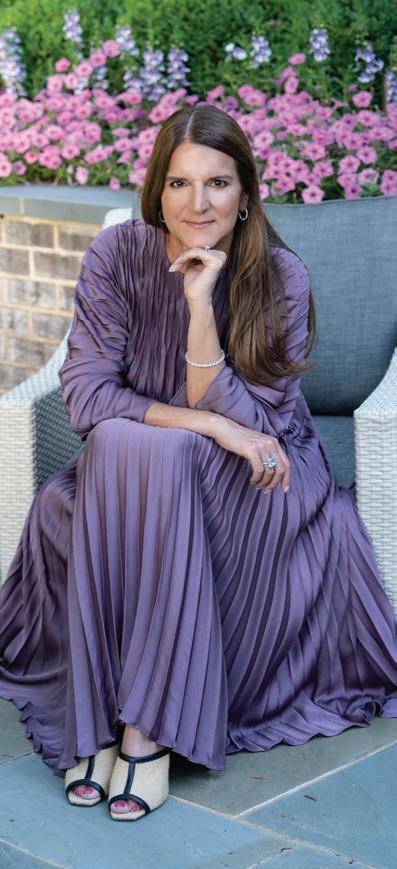


























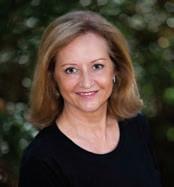





A MYERS PARK FAMILY BREAKS WITH TRADITION IN A BRIGHT AND WELCOMING RENOVATION.
 by Cathy Martin | photographs by Laura Sumrak
by Cathy Martin | photographs by Laura Sumrak
Above and previous page: Three sitting areas create a cohesive design in the family room. Lee sofas anchor the space; the Lucite table is vintage. The draperies feature a Thibaut leafprint fabric, and accents from B.D. Jeffries and Cotswold Marketplace complete the design.

The couple’s previous home was beautiful but staunchly traditional, awash in dark red and blue tones with Persian rugs underfoot. When they purchased their current house in 2016 — a classic Myers Park two-story built in 1938 — they decided it was time to lighten things up a bit.
Like many home renovations, the work started with the kitchen. Before moving in, the homeowners enlisted Gerrard Builders and architect Grey Perry Design to overhaul the space. Once the kitchen was complete, it was time to tackle the rest of the home, starting with the bathrooms. Having previously worked with Swell Décor, the homeowner knew she could trust interior designer Angie Persson’s expertise with the interiors, rounding out the design team for the continuation of the project.


Old and new: Century dining chairs surround an antique table in the dining room. The tiered chandelier is from Arteriors.

“They wanted us to come in and just refresh everything,” says Persson, who started Swell Décor with Merrin Lowe in 2010. (Lowe was also involved in the project until her retirement in 2021.) “[The homeowners] really wanted to brighten it up,” Persson says. Specifically, the clients requested the color yellow be incorporated to create a warm, welcoming vibe.
In the entry hall, Persson replaced dark tones with white walls and trim, swapped a heavy rug for a lighter one, and added a new light fixture and pedestal table. “It opened it up,” the homeowner says, while setting the tone for the rest of the house.

When the pandemic struck mid-renovation, the homeowners began to rethink the way they were utilizing their spaces.
“While working from home in 2020, the homeowners felt the need for an at-home office that was to be placed over the garage when they ran out of space in the main levels,” Persson adds.
The dining room opens to the breakfast nook, above, which was added in the initial phase of the renovation by Gerrard Builders and Greg Perry Design. The pedestal dining table is from Highland House. Chairs are covered in a Lee Jofa fabric; the pillows are Cowtan & Tout.
Left, a space for entertaining: Four matching chairs are accented with custom Kelly Wearstler pillows, creating a cozy gathering spot. The Highland House sideboard is accented with Benson knobs from Modern Matter Hardware. The statement chandelier is from Made Goods.

The office and sitting room over the garage was a new addition to the home and incorporates many of the couple’s existing furnishings. Designer Angie Persson had the ottoman recovered in a neutral shade, added the antelope-print rug from Hall’s Flooring, and reupholstered the accent chair in a black-and-white Lee Jofa fabric.


The original home office was converted to a lounge area for the couple’s teen daughter — Laura Park wallpaper and artwork by Charlotte painter Melissa Herriott give the space a youthful vibe.

Off the foyer, Persson was intentional in creating an entertaining space in a seldom-used sitting room, replacing a sofa with four matching chairs centered around a cocktail table to invite conversation.
But perhaps the biggest metamorphosis was the large family room across the back of the house.
“The transformation of the family room was the most striking,” the homeowner says.
Creative space planning was key. “It’s one long rectangular space, and those are hard to pull together sometimes,” Persson says. Previously, the room was divided into two seating areas separated by a walkway to the French doors. Instead, the designer created three distinct seating areas: a middle sofa with two chairs, a second sofa on one side of the room, and two chairs by the fireplace.
“Now it’s much more cohesive,” the homeowner says.
While most of the furniture is new, the homeowners didn’t have to part with all their existing pieces in the new design. “Angie was happy to help us incorporate things we had and loved and still wanted to use,” says the homeowner, who has zero regrets about ditching the dated traditional aesthetic for a lighter, brighter new home. SP
A PHOTOGRAPHIC JOURNEY ABOUT CONNECTING WITH THE PAST, RETURNING TO THE FAMILIAR, AND SEEKING GREATER MEANING IN THE PLACES ALONG THE WAY.
photographs by Richard Israel | written by Whitley Adkins

For my whole life, I’ve been making that South Carolina back-roads trek to the beach. Depending on the destination — Pawleys Island, Myrtle Beach or Charleston — the exact route varies. But one thing has always stayed the same: avoiding interstates and busy highways as much as possible, choosing instead the magical mystery and scenery of those quiet, country roads.
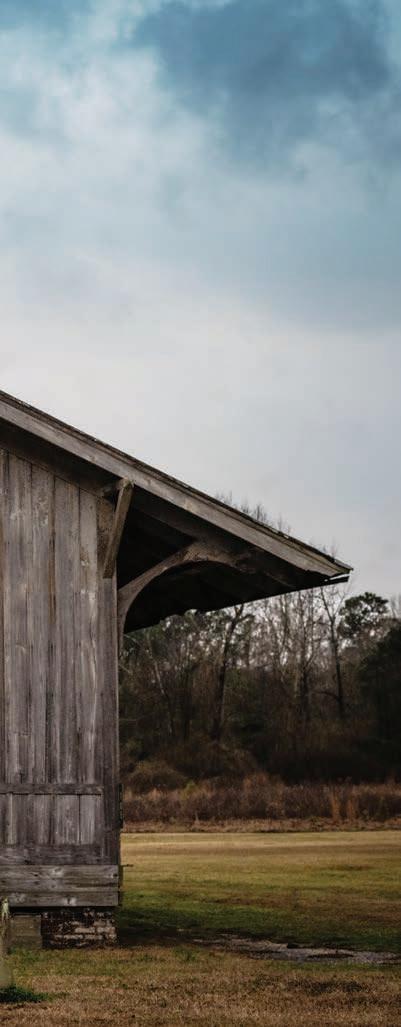
From my youngest years, I vividly remember riding in the back seat of my dad’s 1979 silver Volkswagen Bug convertible, my baby-fine hair blowing uncontrollably every which way. As I got older, I’d ride next to him in the passenger seat, my hair wrapped in a navy or red bandana (which my father, always so gentlemanlike, kept tucked inside the door flap for any female passengers). Working in real estate at Debordieu Colony, a family-friendly coastal community popular with many Charlotteans, he lived in downtown Georgetown during the years leading up to Hurricane Hugo. Dad would go to work, and I would wander the live-oak-lined sidewalks, studying the rich historical homes, both stately and modest, up and down Front Street, wondering what stories those rocking-chair- and joggling-board-lined front porches could tell.
When I was in high school, we took regular trips together to the coast for many a shag-dance competition, often staying at our favorite place, the Sea View Inn. In college, Dad would place a map in the glove box of my car, with highlighter marks tracing the back roads that would take me to my coastal destinations. He also gave me a list of names and telephone numbers of folks he asked me to stop and “call upon” at pay phones along the way. You see, he advised, you never know when you’ll be in need. And one time, as a young adult driving my brand-new, complicated European car in the early evening through tiny Dalzell, S.C., I learned that Dad was right. Thanks to him, on that quiet back road to the beach, I had someone to look out for me.
Today, those roads seem more magical than ever. With two sons of my own, I still make regular trips to the beach with my mom and stepfather. As I encourage my two young boys to take it all in, the farms and fields, stately oaks, old churches, broken-down trucks, and front-porch rockers are even more vivid. And those winding roads and their destinations wrap me in safety and comfort.
Over the last few years, every time I pointed to a tree, house, church or animal, I would say to myself, “I wish Richard were here with me to capture this on camera!” Whenever I’d mention it, his response — in his thick British accent — was always the same. “Oh yeah! Let’s do it. We have to do that!” Photographer Richard Israel and I see things through the same lens. Living in a thriving city with a tear-it-down, make-it-shinier mentality, it’s that messy-but-meaningful, story-filled stuff you can only find on the back roads that we crave.
Finally, on an unrelenting day of rain, we set out to capture all the beautiful things that have caught my eye for the last 45 years from inside the car — to get out and see them more closely, touch them and breathe them in. It was like finally meeting a close family friend or distant relative for the first time.
An old friend at Pawleys Island introduced us to our new friend, artist Zenobia Harper, who would in turn introduce us to a number of fine folks in the Gullah communities surrounding Georgetown, Brown’s Ferry and Pawleys Island. Each of our conversations had a consistent theme:
While each had been encouraged to leave their small communities in pursuit of something bigger and better, they all chose to return home. In seeking something shinier, something more, they realized in doing so, they had everything they needed and wanted all along.

This photographic essay is a journey about connecting with the past — imagining towns, buildings and the people that once inhabited them when they were vibrant communities. This story is about seeking greater meaning in familiar places. This story is about coming home.
The tiny crossroads of Rembert consists of a gas station, car wash, an empty cinderblock building and Lilfred’s. I always wanted to know more about Lilfred’s — I assumed it was a restaurant but never saw any cars outside. On a rainy Wednesday morning, just two vehicles sit on the side of the building. We knock on the door and are greeted by chef-owner Trent Langston. He and his wife Wendy are prepping for tomorrow night’s dinner. Originally a gas station that opened in 1951, the couple now owns the long-standing establishment. The white-tablecloth restaurant serves a $45 four-course meal Thursday-Saturday and caters weddings and other events.

At the Sumter Cut Rate Soda Fountain, I meet Don, a Sumter resident of 30 years, and Todd Touchberry, the restaurant’s general manager. From its opening in 1935 until the mid-1960s there was a grill and counter with 20-something stools, Todd explains. Today, photos and paintings of regulars and accomplished Sumter natives line the walls of the restaurant, including that of The Drifters’ Bill Pinkney. The original wood floor remains.








Entering Greeleyville, a small, white abandoned cinderblock church is emblazoned with the words “True Believers” above a cross. I have always wanted to enter the doors as I pass through, and I always wondered what Sundays looked like in that place. As we got out of our car to approach the buildings, it was as if we could almost hear the preacher and a small choir singing.
Beyond Greeleyville, an overpass in Salters looks down on an old train depot built in the 1850s. Of all the landmarks on this journey, this one most vividly stands out. We peer into the station and abandoned buildings nearby, envisioning people long ago waiting for their train.
Cooper’s Country Store is our last stop before dinner. The store was built in 1937 by former cotton farmer Theron Burrows. Burrows’ son-in-law George Cooper purchased the store in 1974, and today it is run by his nephew, Russell Cooper. As we take a look around, Cooper points to the roof and beadboard, showing us the footprint for the original store and upstairs apartment where Burrows lived with his wife and three daughters from 1937 to 1952. In a screened safe in the kitchen, hams are cured for 90 days. Out back, pigs and chickens are cooked to sell. I sit in the rockers and strike up a conversation with a man named James, who tells me he was a gospel singer in New York City.
After making our way through downtown Andrews and over to Georgetown, we meet Zenobia for dinner at the River Room restaurant. Zenobia’s mother is Gullah, with family ties to Midway, just outside of Georgetown, and the Plantersville community. After college in Atlanta, followed by a two-year stint of wonderfully scandalous things in Harlem and a few other moves, Zenobia knew it was time to return to her roots. Twenty-seven years later, Zenobia celebrates her Gullah roots through a


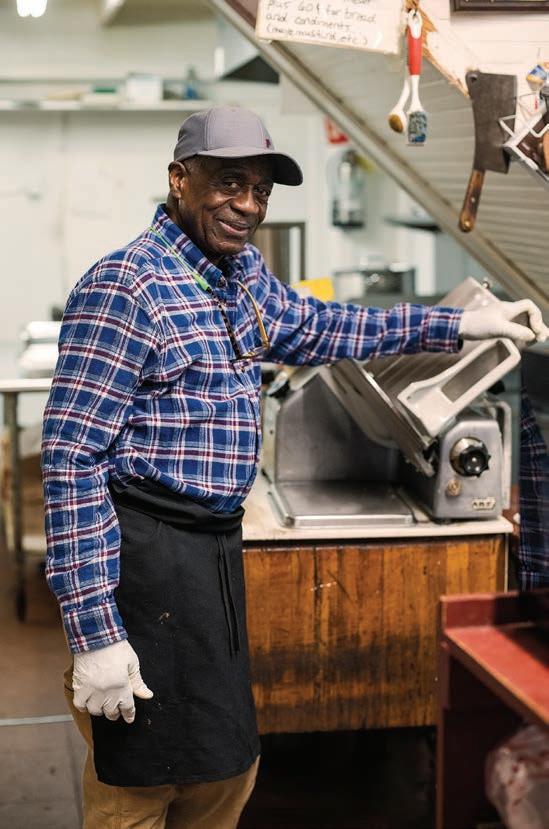

number of avenues. She develops programming for the Rice Museum and serves as community outreach coordinator with the Charles Joyner Institute for Gullah and African Diaspora Studies at Coastal Carolina University. After sharing a meal of oysters, fish, salad and fries, we drive to the Gullah community of Dunbar, where we meet our host for the night, Janette Kennerly, who runs an Airbnb at her property on the Black River. Her grandfather and six other men bought the land before the Emancipation Proclamation in 1863.
After a breakfast of homemade grits, salmon patties, spicy rice with sausage and peppers, and coffee, we stop at Brown’s Ferry Water Company, which I am told is the first Black-owned business in Georgetown. Local businessman and community organizer Jerome Holmes started the water company to address concerns about the health of his community.


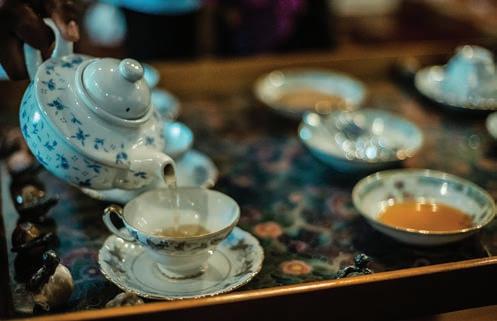
The Gullah Museum in Georgetown offers presentations on Gullah Geechee history, crop cultivation, animal husbandry, arts, crafts, foodways, music and more. Museum co-founder and retired attorney Andrew Rodrigues shares the story of a quilt depicting Michelle Obama made by his late wife, Vermelle “Bunny” Rodrigues. The quilt, which hangs proudly at the Gullah Museum, is part of the permanent collection of the Smithsonian’s National Museum of African American




History and Culture and was featured in the 2013 Presidential Inauguration Parade in Washington, D.C. Andrew, a historian, activist and researcher, carries on the couple’s work, using the story quilts as a teaching tool in lectures at the Gullah Museum.
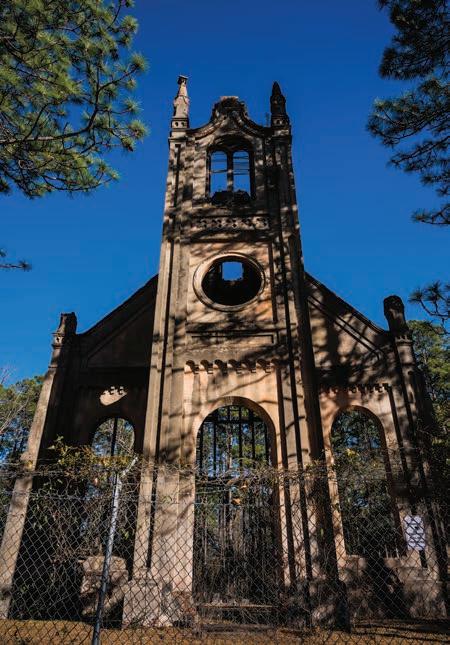
Zenobia greets us at the Rice Museum on Front Street, where Gullah High Tea is served by Jacqueline Williams and Rice Museum Director, Jim Fitch. Jacqueline shares how she was taught to make tea by midwife and herbalist Elizabeth Sumter, and shares her practice for “listening to her ancestors speak” while creating her concoctions. As we depart, Zenobia gives me a bracelet she acquired from a local antique shop.
For as long as I can remember, returning from Pawleys and Debordieu with a styrofoam cooler in tow, my family stopped at Independent Seafood Market to purchase shrimp by the pound. Since 1939, the market has been a Georgetown staple, offering fresh shrimp and seafood to locals and travelers alike. Sadly, the market has been sold to developers and will be closing for good. The longtime resident bird, Wilbur, looks into the glass door as if he knows change is coming soon — many Charlotteans will be equally devastated to learn of the market’s closing.
Later that afternoon at Kidogo Farms, amid six roosters crowing in the background Alissia Matthews explains how, after growing up in rural South Carolina, she moved to Texas to seek a better opportunity. Once tragedy struck her family — her brother lost his daughter to asthma — Matthews and her husband, Monte, decided they needed to make a change in their own environment.
About the same time, Alissia and Monte’s children proclaimed they wanted to live on a farm. “We kept dreaming it and writing it down.” In January 2020, they returned to visit family. The pandemic hit, and they decided to purchase 26 acres of pine forest from a timber company, and the children got their wish. “Being Black, Geechee and from the South, I swagger different, because I’ve always been a landowner, or I knew it was coming,” Alissia says. As she shows us around Kidogo Farms, which provides fresh produce for the surrounding community, she shares their master plan for the farm: By returning home, the couple hopes to “show their children what legacy-building looks like, and to let the land tell them what to do.”

The ruins of Old Gunn Church, officially known as Prince Frederick’s Chapel, and a few miles down the road, the current chapel in Plantersville. A little red house catches our attention in Carver’s Bay, followed by a close look at Black Mingo Plantation in Georgetown County and a makeshift drive-in movie theater. The Indiantown Presbyterian Church, organized in 1757, is the oldest historical marker we see along our journey. The current structure was built in 1830. Richard uses it as an opportunity to remind me how young our country is compared to his home country of England.
Our final stop is downtown Lake City in Florence County. The small town has been revitalized, in large part thanks to the vision of local philanthropist and businesswoman Darla Moore. For 11 days in April, the city becomes a gallery during the annual ArtFields event showcasing Southeastern artists. SP

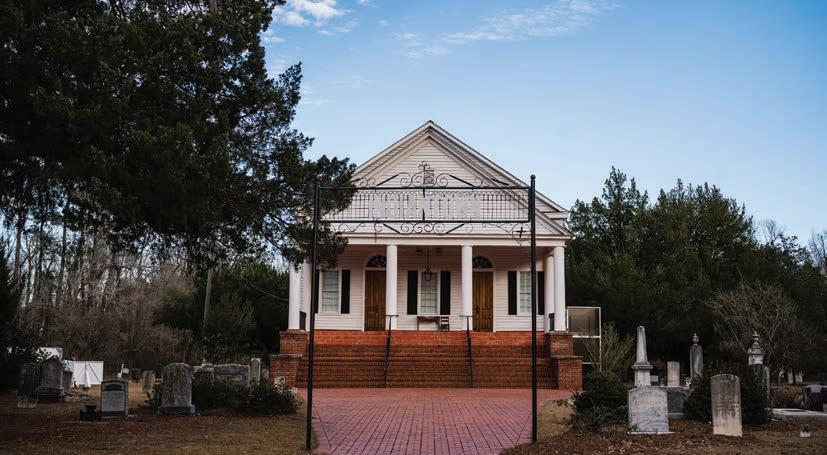

WHETHER VISITING A CABIN IN THE WOODS OR A FAR-FLUNG DESTINATION HALFWAY AROUND THE WORLD, TRAVEL CAN IMPROVE OUR MENTAL HEALTH AND QUALITY OF LIFE.
by Krisha Chachra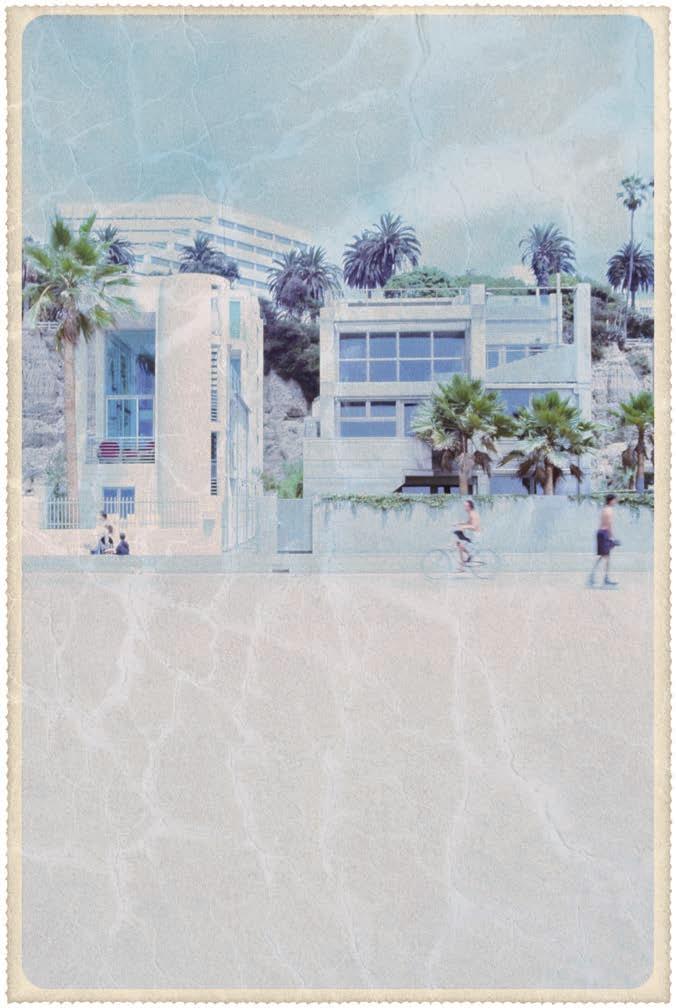
According to the U.S. Travel Association, each year more than half of Americans leave vacation time on the table — hundreds of millions of unused days. Another study published in Nature found that people who change their scenery regularly tend to be happier. Despite the emotional benefits, we seem to ignore that using our extra time to travel is an important ingredient to improving ourselves and our mental health. Time is a gift, and how we use it reveals what we care about. Yet so many of us don’t prioritize using our time to travel.
Why does the thought of putting effort into travel stress us out? The key to eliminating this feeling is to be intentional about traveling the same way we are about the food we eat, our workout routines or the clothes we wear. Think about it — have you booked a “dream” vacation only to navigate large crowds and wait in long lines? Maybe you hoped to relax on a picturesque beach
but returned feeling more anxious than before you left? If this is familiar, you are probably not being intentional about travel.
As a travel writer and consultant for more than 20 years, I have noticed that several people, especially moms, dread planning travel for their families. They don’t want to bother with hauling their kids anywhere or deal with bad attitudes or a spouse’s complaints. I get that. I am a mom. There is nothing more deflating than spending your precious time planning something just to have your family whine about it. But there is a formula for planning a successful travel experience, which in the end can create stronger bonds with family and result in more productivity, creativity and mental positivity at home and work. It’s about reframing how we think about travel.
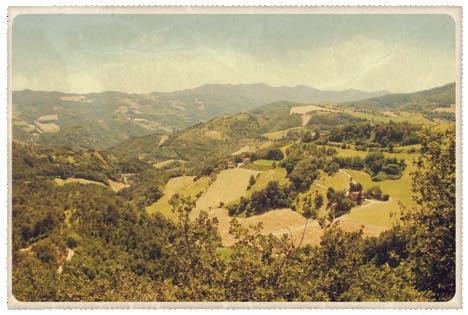

1. Don’t view travel as a luxury. View it as a part of your mental well-being — as a growth opportunity. Travel can be luxurious, but don’t make the mistake of thinking that if you can’t afford luxury, you can’t afford to travel. Your body does not know the difference between an overwater bungalow in Bora Bora and a cabin in the North Carolina mountains. Your mind might know — but your body doesn’t care. What your body craves is the visceral experience that happens when your scenery changes. According to the extensive research conducted by Michael Merzenich, the author of Soft-Wired: How the New Science of Brain Plasticity Can Change Your Life, travel is linked to brain health. When you step outside your comfort zone, your senses awaken — an involuntary defense mechanism when you’re in new surroundings — and you’ll notice the cognitive benefits in observing something, tasting new foods or walking new paths. You don’t need to spend a lot of money going overseas or staying in a high-end resort to get a break. You don’t even need to take an entire week off work. Instead, take a day or two and try that one thing that you always wanted to do. A vacation doesn’t need to be a place, it can be an event. Get your body there and your mind will follow.
2. Think of a place you want to go, not necessarily a place where everyone else is going. Travel is not a destination bucket list that you need to check off. Ask yourself why you are putting so much pressure on yourself to book a week at Kiawah Island, a trip to Europe or the perfect Disney vacation. Is that really where your family will thrive right now? If your kids are

into rock formations, go to the Grand Canyon or a cool quarry. If you need inspiration, maybe choose an artist town like Santa Fe, N.M., St. Petersburg, Fla., or Asheville. Listen to yourself and select the place that best fits your needs at the moment. Destinations offer wonderful opportunities to learn about other ways of living. Pick one where you might harness new life lessons to bring home.
3. Timing is everything. Recently I read a social-media post where a mom was beating herself up about dropping the ball on spring break. She called herself a “bad mom” and felt immense guilt for not providing a vacation experience for her family. Here’s the thing: Spring break is an artificial time to “need” to travel, and the industry capitalizes on the pressure you’re feeling to go somewhere. If it doesn’t work for your schedule, then don’t travel that week! Your kids will be fine. Instead, make plans for a week and location where the whole family can accomplish your vacation goals.
4. Have vacation goals! Really think about this one. Write them down. It is okay to be spontaneous on a trip, but direction is important. Don’t get lost satisfying everyone’s demands. If your goal is to bond with your spouse, then pick a place that affords opportunities to connect. Plan something that you both like doing (like hiking, exploring or wine tasting) and something that you’ve never tried together (like canoeing, rafting or sailing). Carve out time for your own goals — but follow through with your plan.

5. Discover something about yourself that you didn’t know. We all have an unknown window — information we don’t know about ourselves that is only unmasked in new situations. Travel makes us more of ourselves; it coaxes out our capabilities, likes and dislikes and uncovers our unknown areas.

Wherever you go this year, remember to be intentional — travel can be a vehicle to enhance your quality of life. It doesn’t need to be stressful, a bucket-list competition, or an out-of-reach luxury. Instead, view travel as a mental-health necessity — an opportunity to bond with others, connect with something new and learn more about yourself. SP
Krisha Chachra is a Charlotte-based travel writer. She has visited more than 50 countries in six continents and loves exploring new destinations with her husband and daughter. Contact her at krishachachra.com or on Instagram @destinationsanddelish and @krishachachra.

The 40 islands comprising Turks and Caicos were sparsely populated until the 1990s, when Providenciales emerged as a low-key vacation spot for the well-heeled. While the original Lucayan Taino inhabitants farmed, fished and gardened, later, salt became an important industry. After the Revolutionary War, displaced British Loyalists — along with enslaved people from the Gullah region of the Carolinas, Georgia and Florida — moved to the islands and attempted to grow cotton, but the limestone base wasn’t conducive for the crop. Over the years, the British Overseas Territory has been considered part of Bermuda, Bahamas and Jamaica. When Jamaica became independent in 1962, Turks and Caicos finally became a British Crown colony on its own.
LEAVE STRESS BEHIND AND ESCAPE TO THE TROPICS: TURKS AND CAICOS IS A 3-HOUR NONSTOP FLIGHT FROM CHARLOTTE — AND A LOW-KEY ALTERNATIVE TO CROWDED CARIBBEAN HOT SPOTS
 by Cathy Martin
by Cathy Martin
Confirming what many of us have long suspected, research published last year suggests being near water can improve mental health, building on previous studies touting nature’s calming effects.
Providenciales native Beverly Howell can attest to that. Though she’s an avid traveler who keeps her passport at the ready, the softspoken general manager at Point Grace, a 28-key luxury resort on the island’s iconic 12-mile Grace Bay Beach, admits to feeling a little anxious when she goes more than a few days without seeing the ocean.
After a recent visit to Provo, as locals call the third-largest of Turks and Caicos’ eight inhabited islands, it’s suddenly clear. From the moment the plane approaches the impossibly blue waters surrounding the 38-square-mile island, it’s easy to understand why Howell says she can’t imagine living anywhere else.
Point Grace is a tranquil oceanfront resort that’s been recently revitalized with an interiors refresh by New York-based AD100 designer Young Huh. Post-renovation, the ’90s-era property maintains a British West Indies aesthetic, but heavy, dark wood furnishings have given way to lighter finishes, soft pink and aqua tones, bold palm prints, and a brighter, airier vibe.
At the intimate resort, nestled among palm trees behind privacy walls draped with bougainvillea, the focus is on relaxation. The pool, designated a “quiet zone,” is meant more for lounging and floating than for cannonballs or rowdy games of Marco Polo. Friendly, white-clad staff deliver champagne buckets filled with ice cold water, or whatever else your heart desires from the poolside gazebo bar. And secluded behind the lush tropical landscaping, two open-air treatment rooms at the on-site spa allow guests to enjoy their massage or facial with the bonus of a stress-evaporating sea breeze.
But the resort’s finest amenity might be Grace’s Cottage, a French-inspired fine-dining restaurant with impeccable service in a garden-like setting. Before dinner, settle in at the bar with a Dark and Stormy (homemade ginger beer and Bermudian rum) or a jalapeno margarita and admire the stunning 25-foot Bisazza-glass tile mosaic mural, one of the more striking elements of Huh’s renovation. Service is leisurely — you’ll want to savor the experience — and the menu features Caribbean twists on classics such as Chateaubriand, Caicos bouillabaisse and a decadent lobster Thermidor.

Point Grace is part of Grace Bay Resorts, a collection of resorts and private villas that is celebrating 30 years while briskly expanding its footprint on the island. The sleek new Rock House cliffside resort on the island’s North Shore opened last year, and South Bank, a residential resort and marina on 31 acres of Long Bay Beach, is set to debut this month. An expansion of Point Grace is also underway.
Just a mile from Point Grace is the developer’s flagship property, Grace Bay Club, an all-oceanfront-suite resort that opened in 1993 when Turks and Caicos was just emerging as a luxury destination. The sprawling 11acre resort caters to both couples and families with three types of accommodations: an adults-only hotel with spacious 1- and 2-bedroom suites, family-friendly villas, and the ultra-luxurious Estate — expansive four- and five-bedroom residences with wraparound porches, large kitchens and a separate pool.
Grace Bay Club is consistently ranked among the Caribbean’s top resorts, and with high-touch service and a location that’s second to none, it’s easy to see why. If the place doesn’t seem crowded, that’s intentional. Even when the resort is at capacity, a lounge chair or private cabana will always be available, with an attendant quick to provide a fresh towel. Guests are assigned a concierge upon arrival; other luxury amenities include a spa and boutique, a kids club, L’Occitane beauty products, and fitness classes, including a yoga program led by David Bowen, the resort’s director of wellness, culture and entertainment, and an island fixture (he’s the former director of culture for Turks and Caicos).

Infiniti, the on-site restaurant and bar, boasts a hard-to-beat beachfront setting, with live music and creative-yet-approachable dishes, from tapas and sushi to wood-grilled seafood and steaks. Guests dine under palms wrapped in twinkle lights with lanterns swaying overhead, or at the seemingly endless 90-foot bar stretching toward the sea.




With Grace Bay Club’s stellar dining options — including an open-air grill (also beachside) serving lunch, dinner and a breakfast buffet with options for every palate — you’d be pressed for a reason to venture off-site. But ask any local where to eat, and they’re quick to recommend Da Conch Shack, a casual beachside café in the Blue Hills neighborhood where you can dine on the beach with sand between your toes or at brightly colored picnic tables in the shady courtyard. As expected, conch is the star of the menu, from fritters to “cracked” conch (fried strips served with a zesty dipping sauce) to conch salad, the ceviche-like Caribbean specialty of briny conch meat marinated in fresh lime juice with tomatoes, onions and peppers. Fresh fish tacos, grilled or blackened catch of the day, and lobster are also on the menu, along with rum-focused cocktails. The place really gets hopping on Wednesday “Junkanoo” nights with live music, but Da Conch Shack is worth a trip no matter when you visit.
On every vacation, you reach a point of over-indulgence that calls for a simple, casual meal in a flip-flop-friendly setting. Cocovan, a counter-service al fresco restaurant within walking distance of Grace Bay Club, fits the bill. The casual sibling to the popular Coco Bistro, Cocovan serves a rotating menu of gourmet tacos, burgers and tropical drinks out of a gussied-up 1974 Airstream trailer. Grab a table in the shady courtyard, and wind down with an Airstreamer cocktail (tequila, mango and lime), the perfect accompaniment to a mahi sandwich with a side of crispy Brussels sprouts.
With Grace Bay’s immaculate white-sand beaches and three impressive pools — including an adults-only infinity pool and another with a swim-up bar — it can be tempting to spend your entire vacation on a lounger, a glass of rum punch by your side. But with 340 miles of barrier reef surrounding Turks and Caicos, there’s an underwa-


ter world ripe for exploration. Activities include scuba diving, kayaking, sailing, even horseback riding on the beach.
I opted for a snorkeling-optional, half-day boat tour. Right on time, the catamaran from Island Vibes Tours pulled up near the shore, I climbed aboard, and we were off. Our guide for the day was equally versed in the local ecology (like the dense mangrove wetlands protecting the coastline) and the latest celebrity scoop (like which villa served as the backdrop for the latest Real Housewives getaway). After cruising the coastline and snorkeling, we picnicked at Half Moon Bay, a sandbar formed after a hurricane in the ’80s where (friendly) rock iguanas roam freely. Back onboard, we sipped local Turk’s Head beers, then paused for a final swim before heading back to the resort.
In the 30 years since Grace Bay Club opened, buildings on the island have gotten taller, and the beaches, while still uncrowded by most standards, are a bit more populated. Yet somehow, the resort still feels intimate. Within a very short time, staff members remember your name, where you’re from and your drink order. Back at Point Grace, Howell says that hospitality comes natural to the people of the islands, who seem to genuinely love their home and are eager to show it off to visitors. “I think hospitality is in our DNA.” SP
When to visit: Though the weather is less predictable from late August to early October, given Turks and Caicos’ temperate climate, there really isn’t a bad time to visit. Locals say February and March is the most popular season, but even in summer there’s always a sea breeze to beat the heat. To celebrate its 30-year anniversary, Grace Bay Resorts has a slate of special events, including culinary experiences like popups with Texas sushi master Tyson Cole in June and December, private yacht parties, and more. Visit gracebayresorts.com for more information.


If you’ve shopped for new floors recently–or taken on any other home improvement project–you know the process and number of decisions can feel overwhelming.


But what if it could be easier?
That was Carlo Garcia’s aim when he founded MyNewFloor.com, after spending more than a decade installing and selling hardwood floors, carpet, LVP, laminated wood and tile to Charlotte-area homeowners.
The result: a start-to-finish flooring project that’s easy and worry-free, with the help of a partner focused on both design and technology at every step.

“The process of picking out new floors can feel complicated,” says Garcia. “We hand-select only the best-performing materials so you’ll have plenty of options at every price point, without being overwhelmed by thousands of options.”
says Garcia, who just opened the company’s third Charlotte-area showroom. “You get white-glove customer service coupled with competitive, transparent pricing and the highest-quality products in the industry. Plus, every new floor is installed by our certified, highly trained team.”
MyNewFloor.com’s curated collection comprises flooring from leading manufacturers, including Shaw, Mohawk and Mercier. The company rigorously tests all products, and maintains a wide inventory in its Charlotte warehouse, which means your floors are ready for installation as soon as you are.
“Because of our long and successful relationships with manufacturers, we eliminate the need for a middle man in the process,” Garcia explains. “This translates to faster service and better value.”
“MyNewFloor.com offers a simplified shopping experience with unmatched value,”
“You have enough information to sift through when shopping for your new flooring,” Garcia says. “You shouldn’t have to worry about hunting down hidden fees and add-on costs to understand the all-in price in your estimates, too.”

That’s why MyNewFloor.com offers one low, all-inclusive price per-square-foot in every estimate. And when they say “all-inclusive,” they mean it: no surprises, no unexpected upcharges. The result: competitive pricing and 0% financing that make it easy for you to budget for your project.
“We’ve got pricing down to a science,” Garcia says. “Over the last 20 years, we’ve collected and analyzed enough data to create an algorithm that computes all flooring costs. The calculation provides an all-inclusive price per-square-foot. It means you only pay for exactly the material you use, with no waste or excess. We’re always striving to find innovative ways to save money for our customers.”
Selecting the right floors for your space and lifestyle, along with demo and installation, can be tedious processes sometimes fraught with unexpected challenges. Using a pro team with certified installers who’ve seen–and can efficiently troubleshoot–it all can drastically reduce your risk of delays, extra costs and potential damage to your home.
“We’re unique among Charlotte’s flooring companies in that we require rigorous testing and certifications for all installers,” says Garcia. “This means you can count on expert flooring and carpet installation done quickly, accurately and professionally.”
Flooring is a major investment, so seeing it all in context is important when making your product selections. MyNewFloor.com utilizes an advanced scanner that measures your rooms and overlays products in 3D.
“You can fully visualize the flooring from corner to corner, and around every piece of furniture,” Garcia says. “This way, accuracy is ensured and there’s no guesswork. Our imaging capability allows our measurers and installers to embed notes directly on the photos, specifying unique needs and details. We’re proud to provide an industry-leading method that changes the nature of how flooring is measured and installed.”
Ready to find the flooring that’s right for your home? Visit MyNewFloor.com to schedule your free estimate with a professional flooring expert, or shop the curated collection of hardwood, laminated wood, carpet, LVP and tile at MyNewFloor.com’s Blakeney, South End or all-new Lake Norman showrooms.

THE FINAL SEASON BEGINS MARCH 19TH STREAM SEASONS 1 & 2 NOW

wtvi.org/passport WITH PBS CHARLOTTE PASSPORT

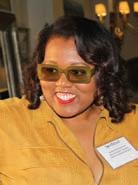
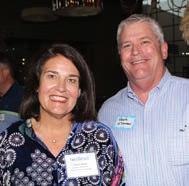
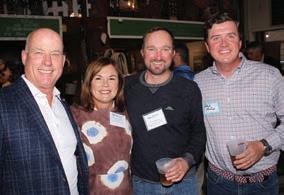



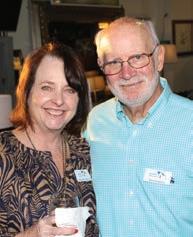
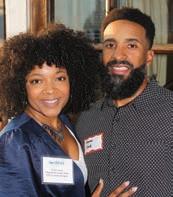

Hadley Keller and Margaret Scheurer
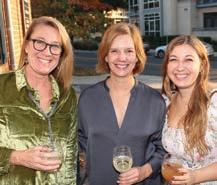
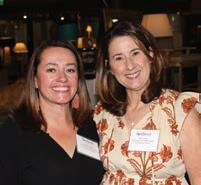


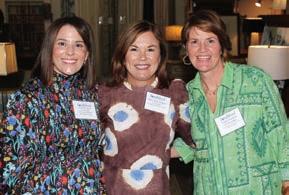
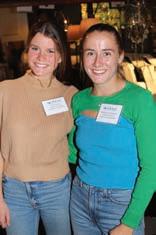














A monthly guide to Charlotte’s parties and galas

benefiting The Foundation For Tomorrow
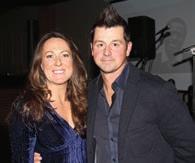
November 19, 2022
This annual gala provided an evening of fun and raised money to support education efforts across Tanzania.


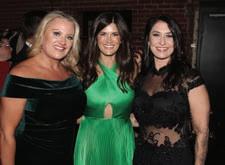


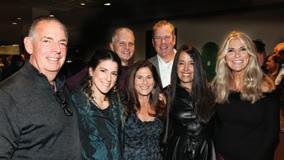



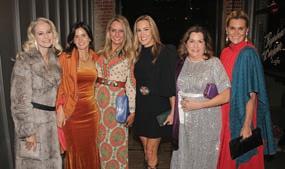
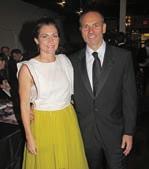
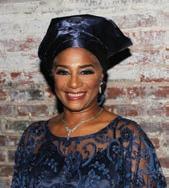
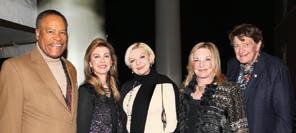

Members and their guests enjoyed a pre-concert cocktail party and after-party at the Smokey Robinson concert at the Sandra Levine Theatre at Queens University of Charlotte.


A monthly guide to Charlotte’s parties and galas

benefiting Ronald McDonald House of Charlotte

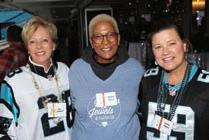
October 29, 2022
Everyone left a winner after this enjoyable evening at Bank of America Stadium. Patrons chatted over food and drink, placed their bids and took in the sounds of Chairmen of the Board. The event raised more than $350,000 for the Ronald McDonald House of Charlotte.

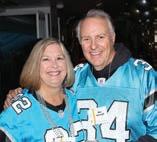


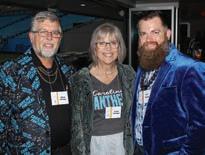



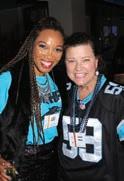
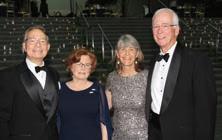


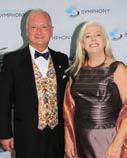
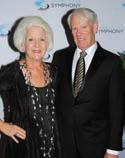


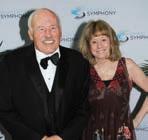
Belk Theater and Urban Garden
November 5, 2022
The CSO opened its 91st season with an evening of honors and music. Michael Marsicano and Charles Bowman were recognized for their years of community service, followed by a special concert with Grammy-award winner Rhiannon Giddens.
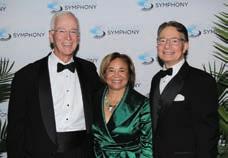

A monthly guide to Charlotte’s parties and galas


benefiting the Charlotte Mecklenburg Library Foundation





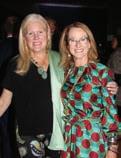
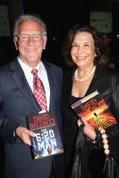
November 10, 2022
Library patrons and avid readers flocked to the Charlotte Convention Center for this signature fundraiser featuring five bestselling authors, plus plenty of wine, food and good conversation. The evening raised nearly $500,000 to support the local library system.

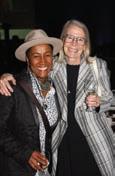
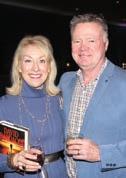

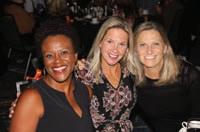

THE ANNUAL FESTIVAL, A MEGAPHONE FOR LOCAL ARTISTS, RETURNS WITH CREATIVE SURPRISES AND FAN FAVORITES.

 by Sharon Smith
by Sharon Smith
As we lose the winter chill, Charlotte SHOUT! blows in like a great ice breaker that brings people together and announces spring. It’s a safe conversation starter, “We just went — loved the seesaws!” and a lively place for a photo session to fill up your feed.

It’s also where creatives, from down the street and across the globe, are recognized for what they bring to the community table. There’s an even bigger platform this year, with nearly 200 installations, performances and events. Robert Krumbine, who produces the 17-day festival in his role as chief creative officer at Charlotte Center City Partners, says our local talent raises the bar each year. “We are developing our local talent — and also developing our local audience to support the local talent,” Krumbine says.
One of the new marquee attractions is Pianodrome, a round, 100-seat music venue fully created by using bits and pieces of old pianos. The upcycled “listening room” promises to be a unique draw at historic Grace Church on Brevard Street. Krumbine says the idea came from a 2019 trip to Edinburgh, Scotland. SHOUT!’s
Pianodrome recreation is the first to be built in America. “It’s not something anyone can say they’ve ever done before,” Krumbine says.
Another new sight to see is !CON, a collection of 10-foot-tall “wayfinder” exclamation points to give festivalgoers directional help. Krumbine says a staff member came up with the idea, which is a nod to the logo and creates another way to engage 15 more artists.
If there’s one spectacle that may become the new crowd favorite, Krumbine says the 30-foot Roaming Gnomes have a good shot. He doesn’t want to give too much away but says the colorful, illuminated, whimsical creatures are sure to be a popular photo op.
There will be old favorites, too. Look for the giant Easter eggs with freshly-painted designs and the always-worth-the-wait “Impulse” seesaws, which will once again line Levine Avenue of the Arts. SP
Charlotte SHOUT! takes place March 31-April 16 in uptown. Nearly all events are outdoors, free and open to the public. Follow @cltshout or visit charlotteshout.com for details.



